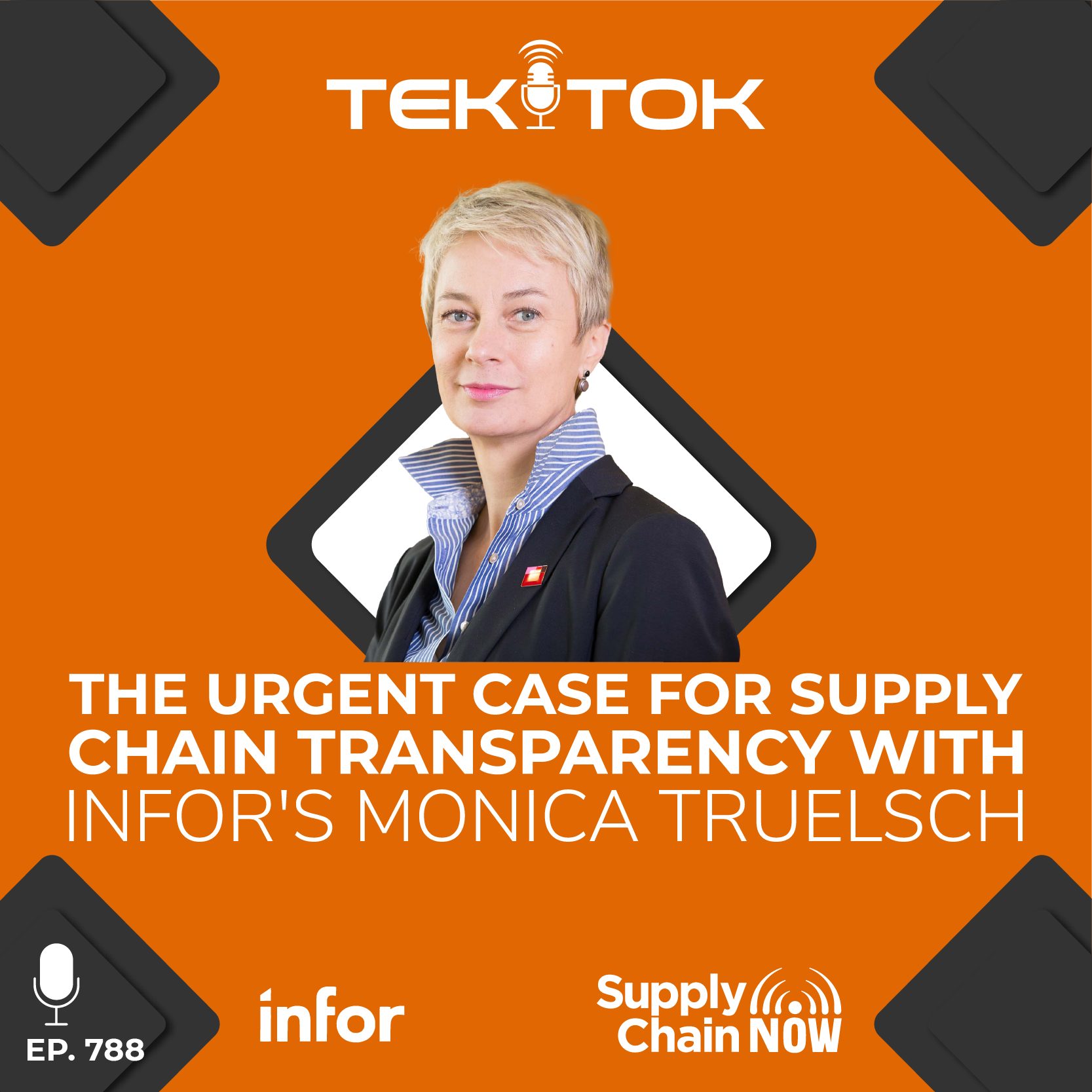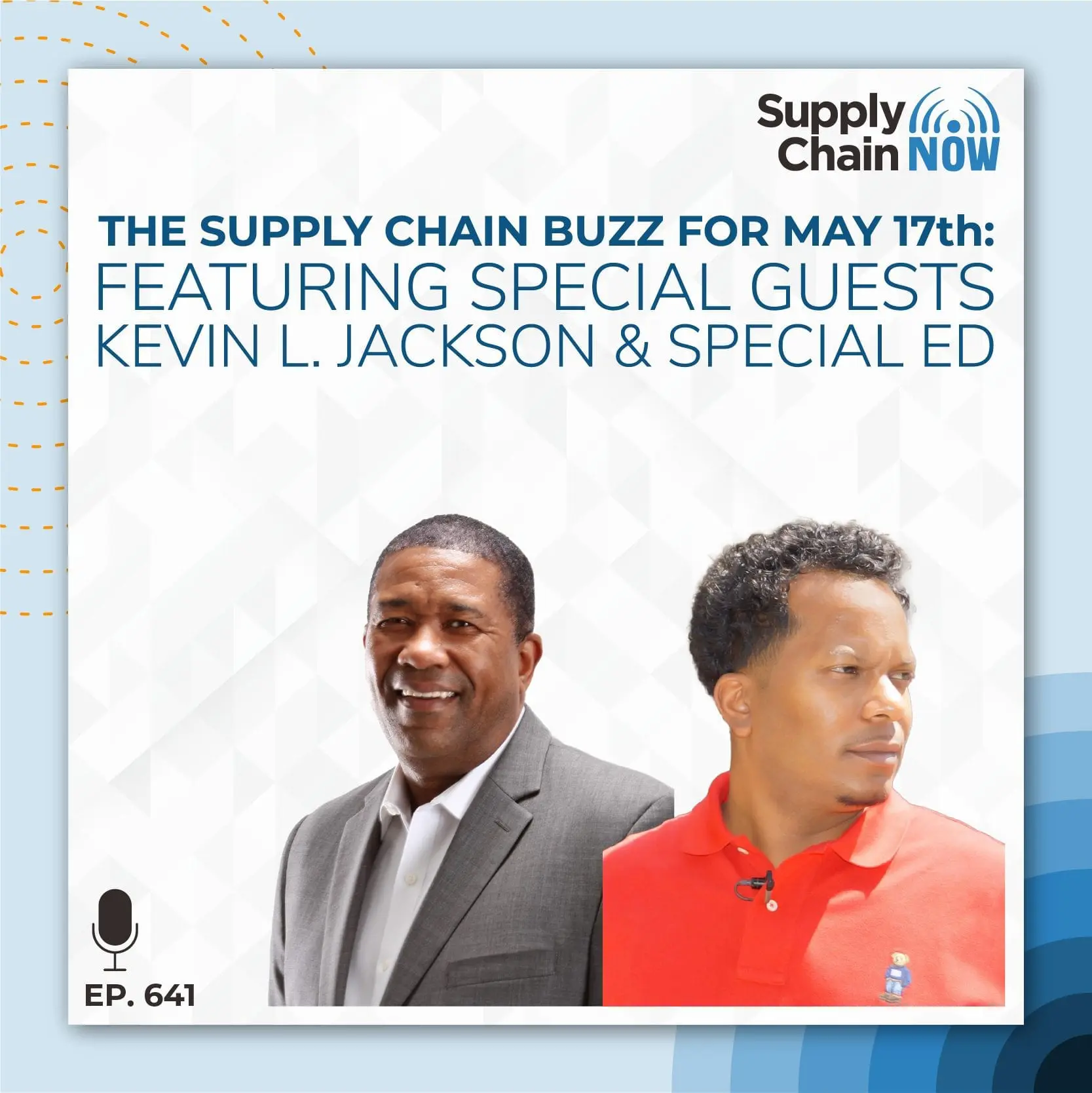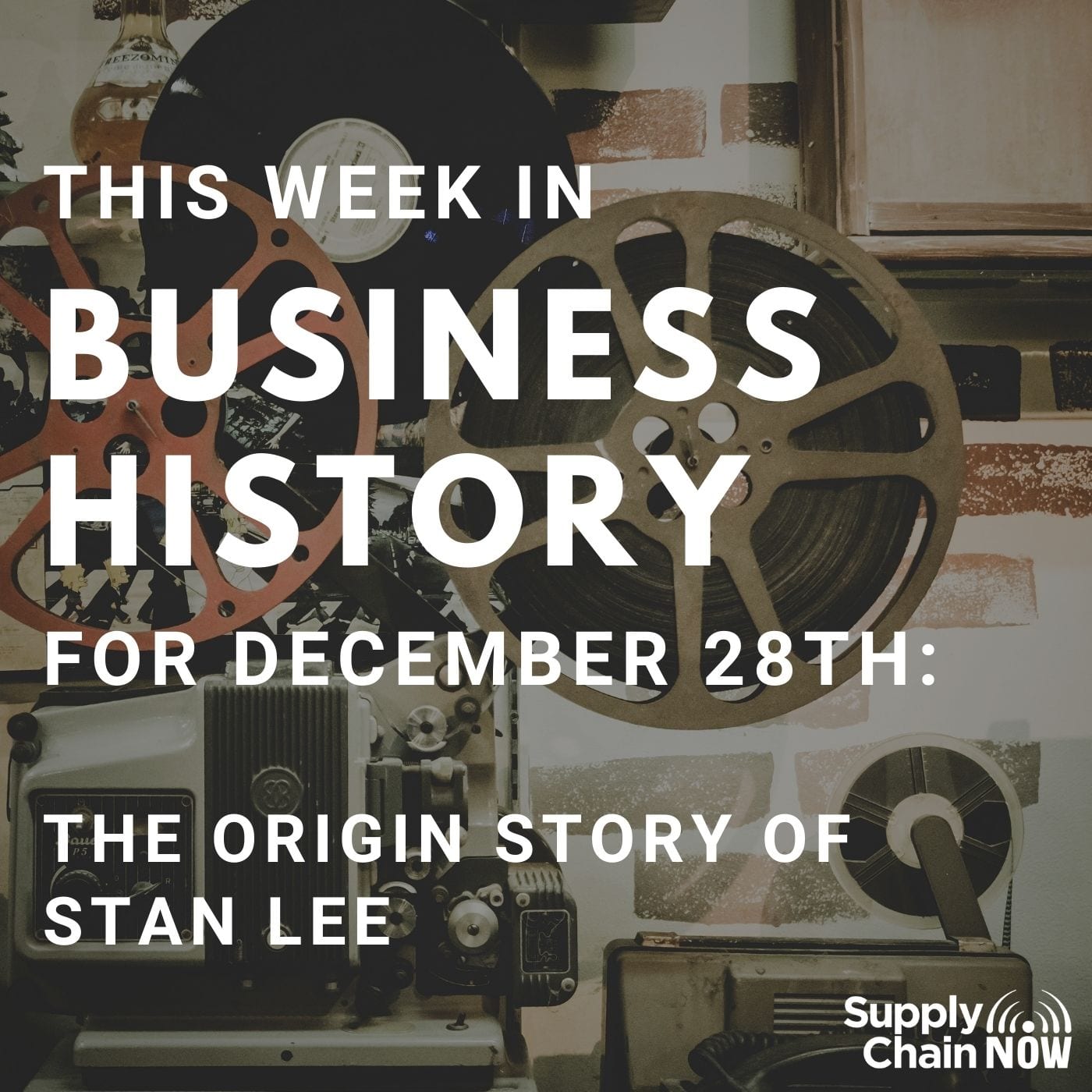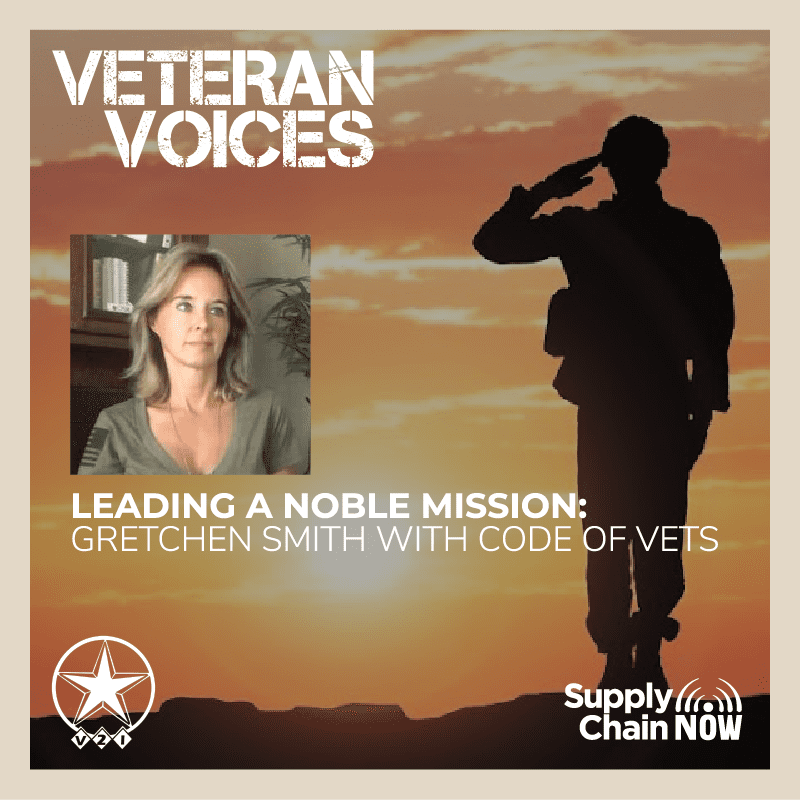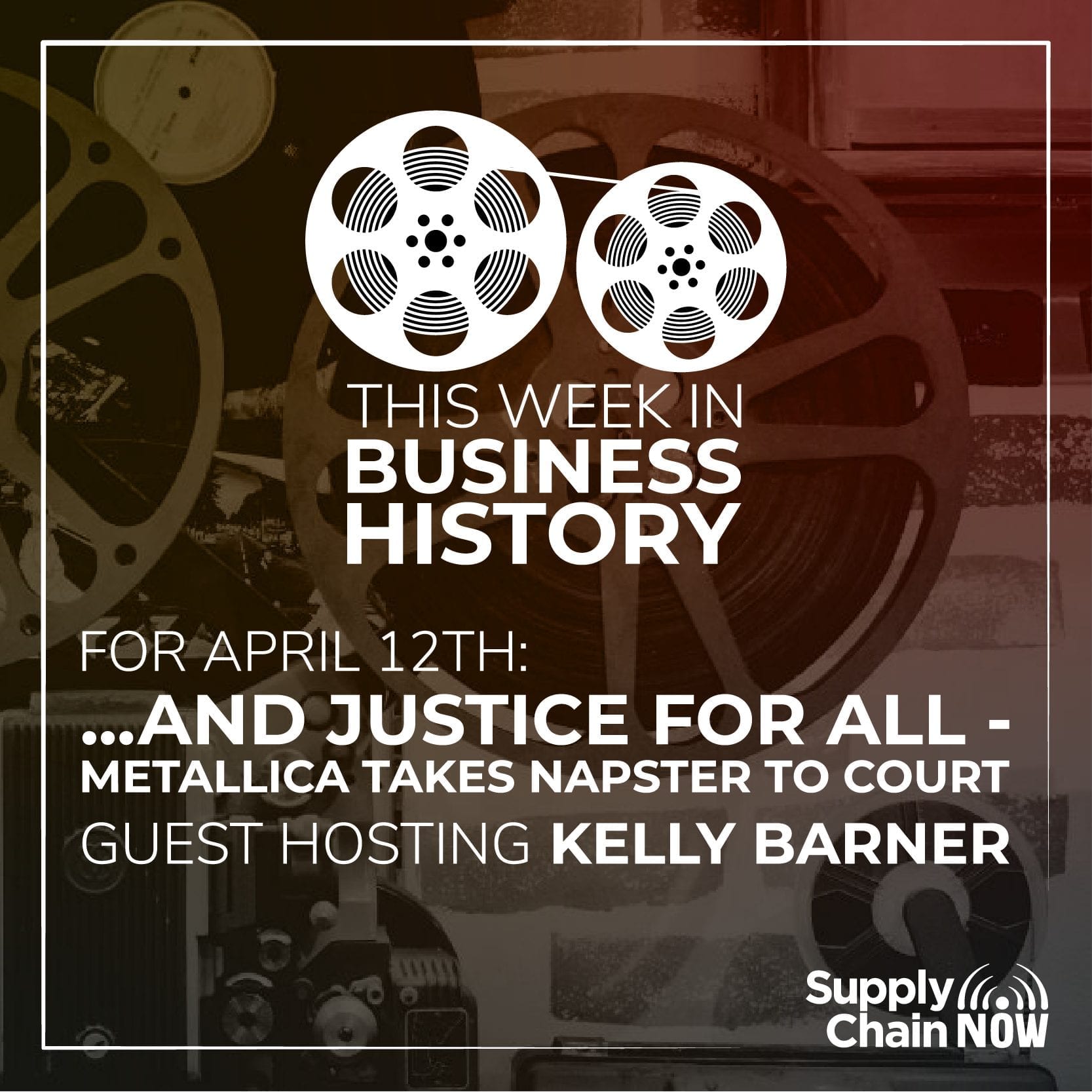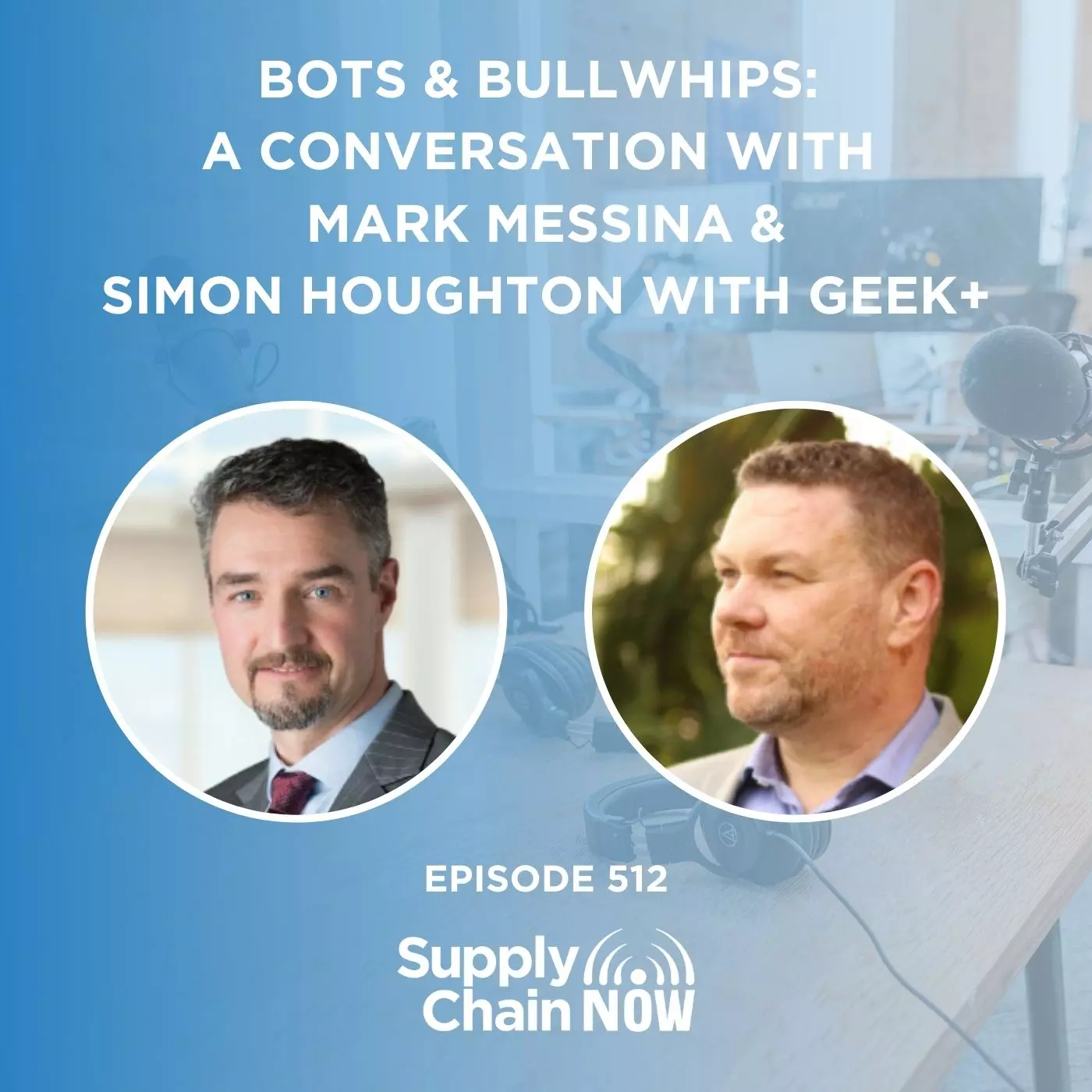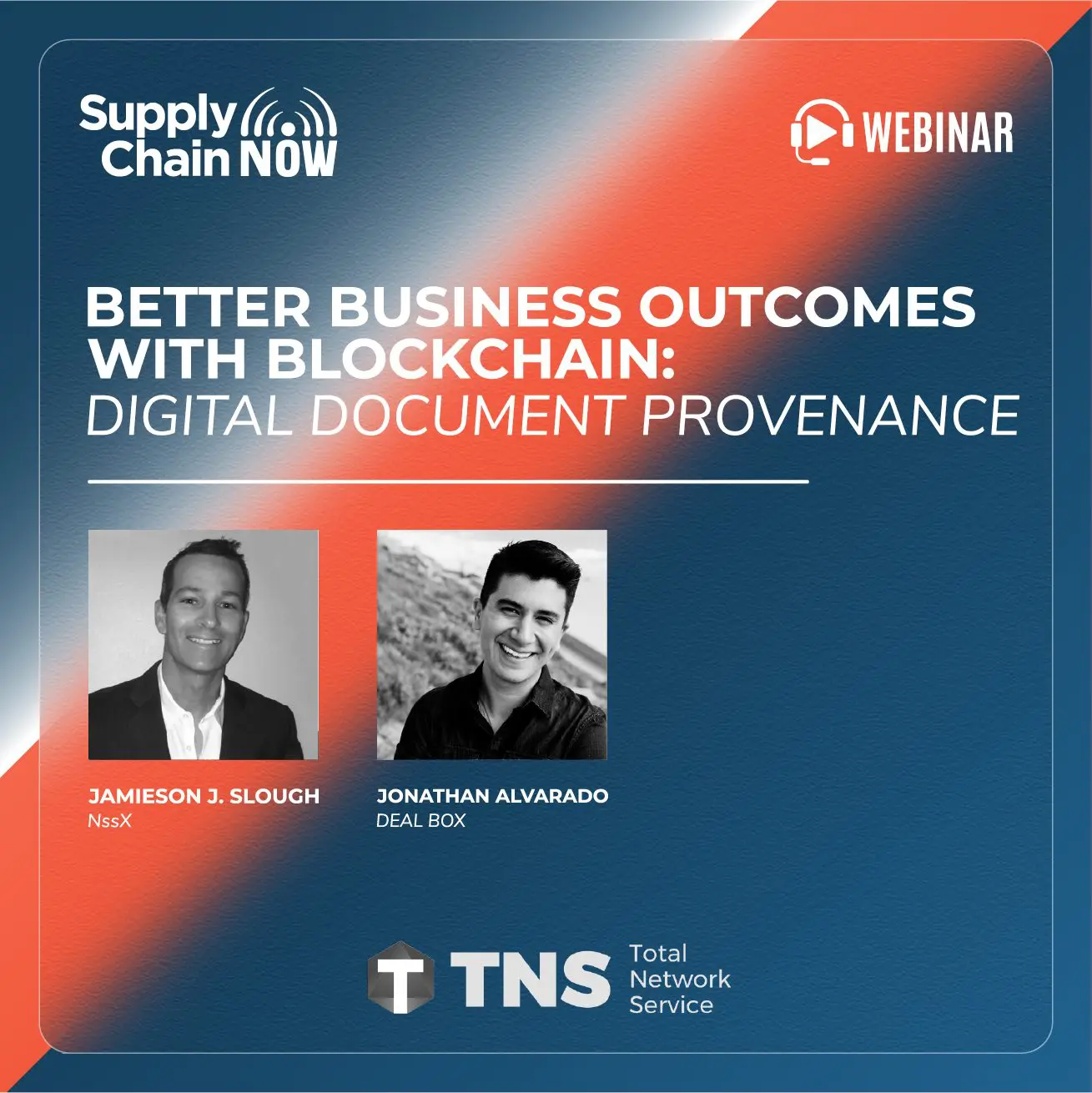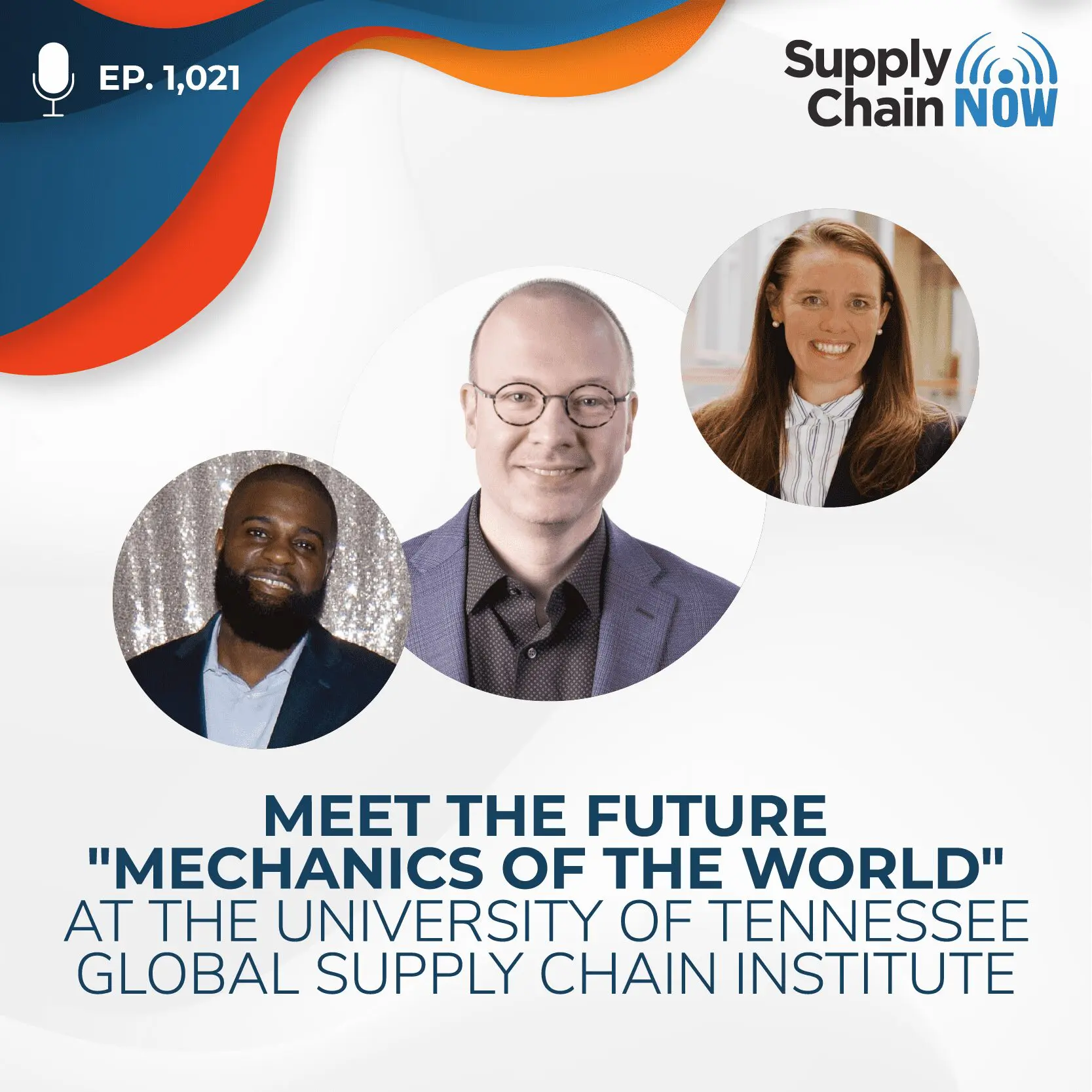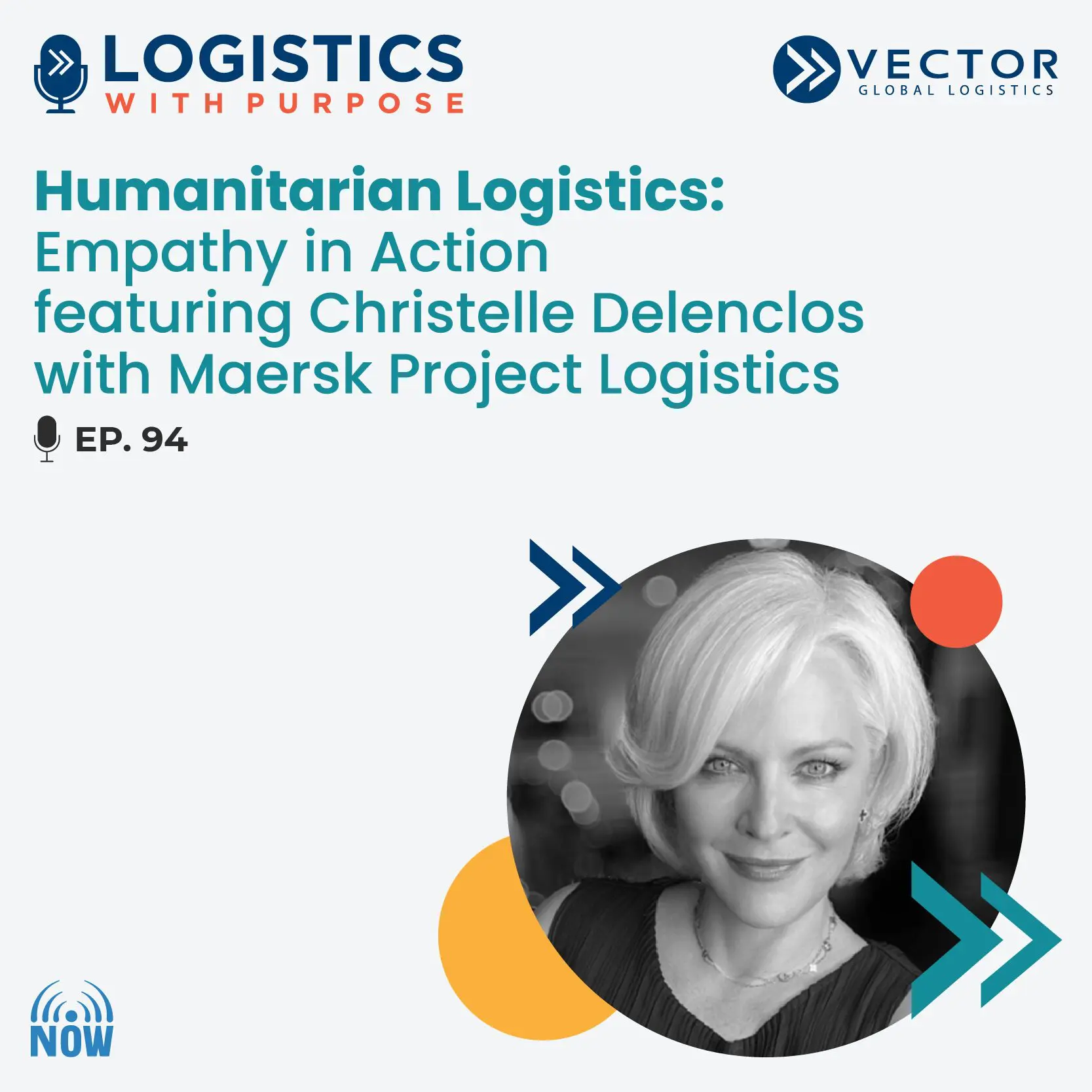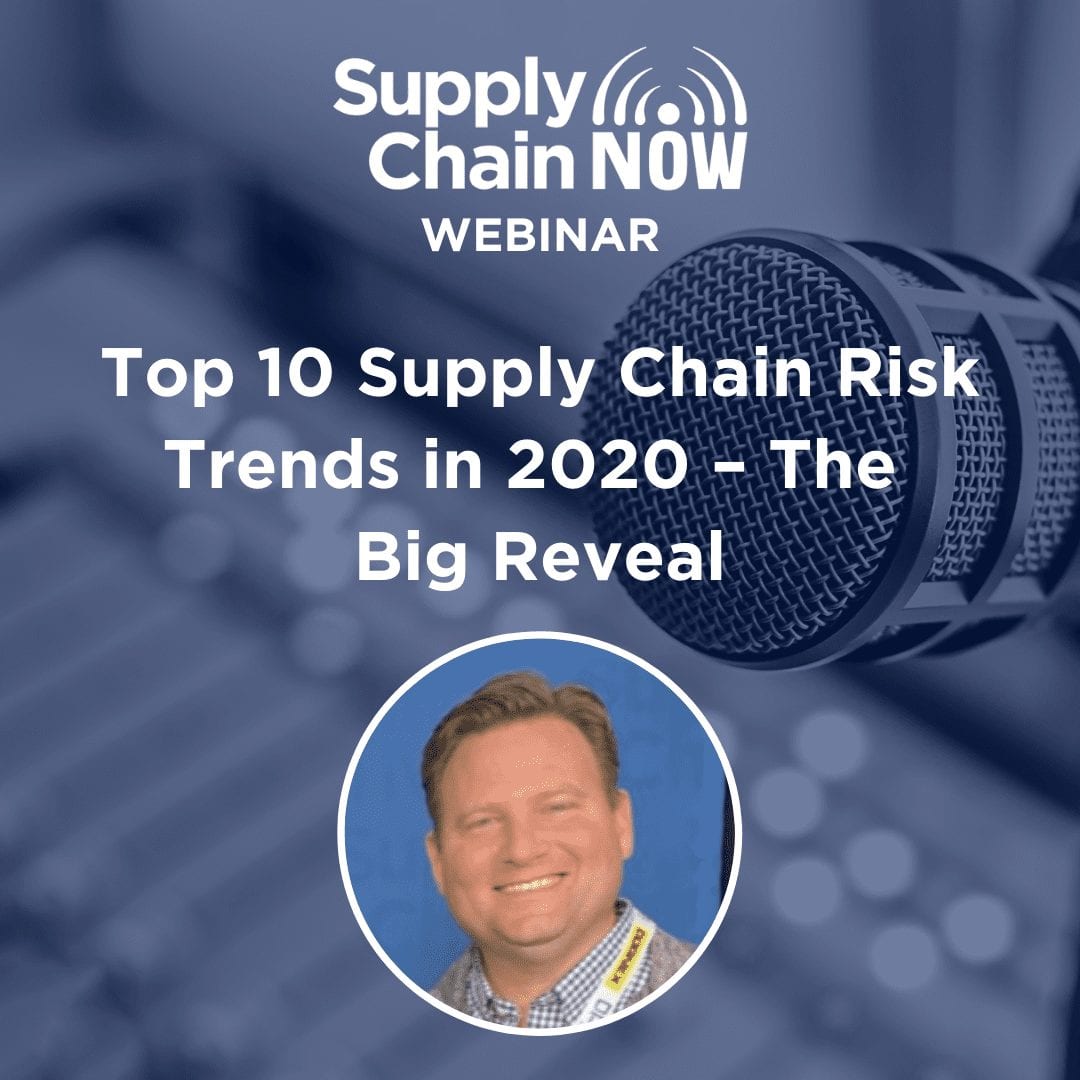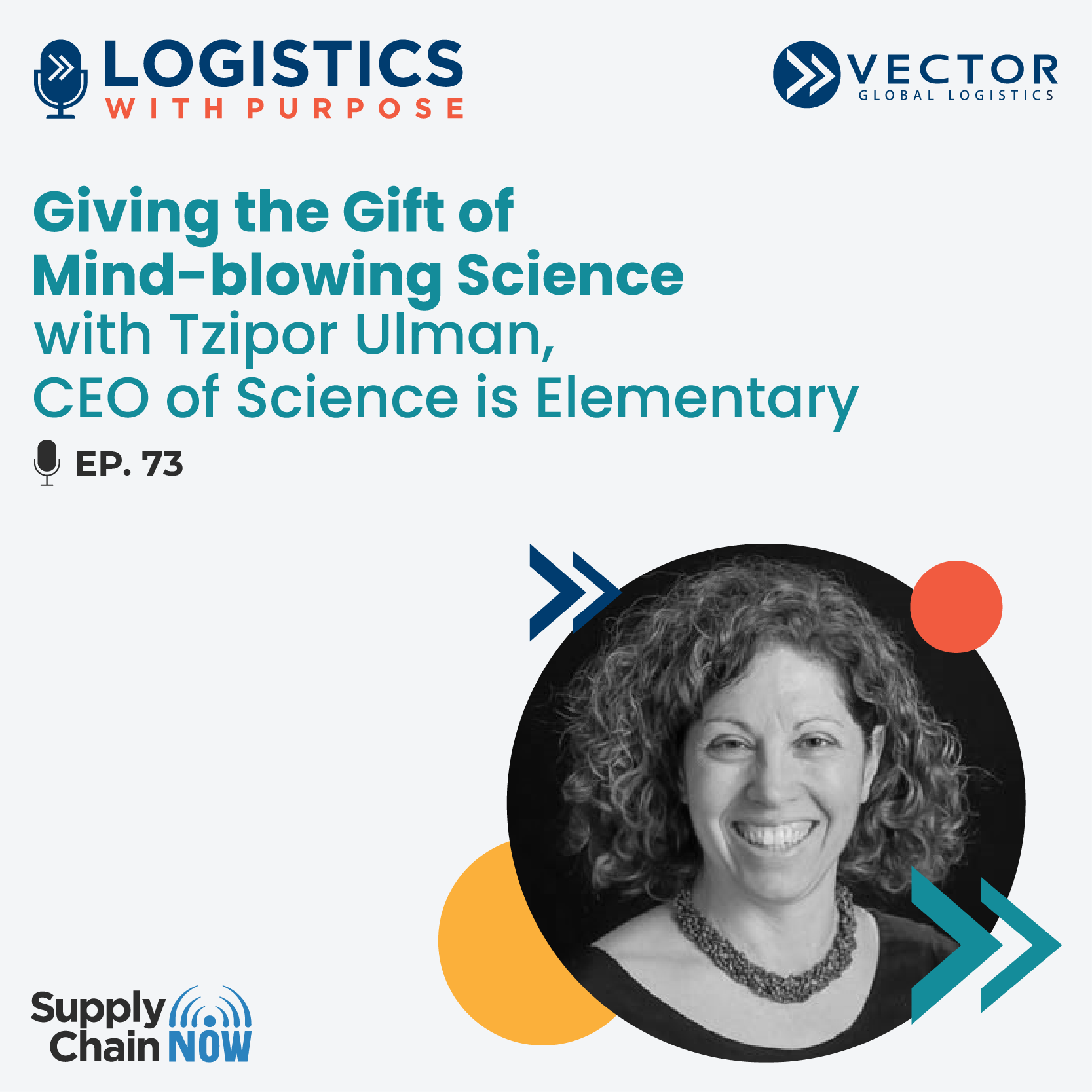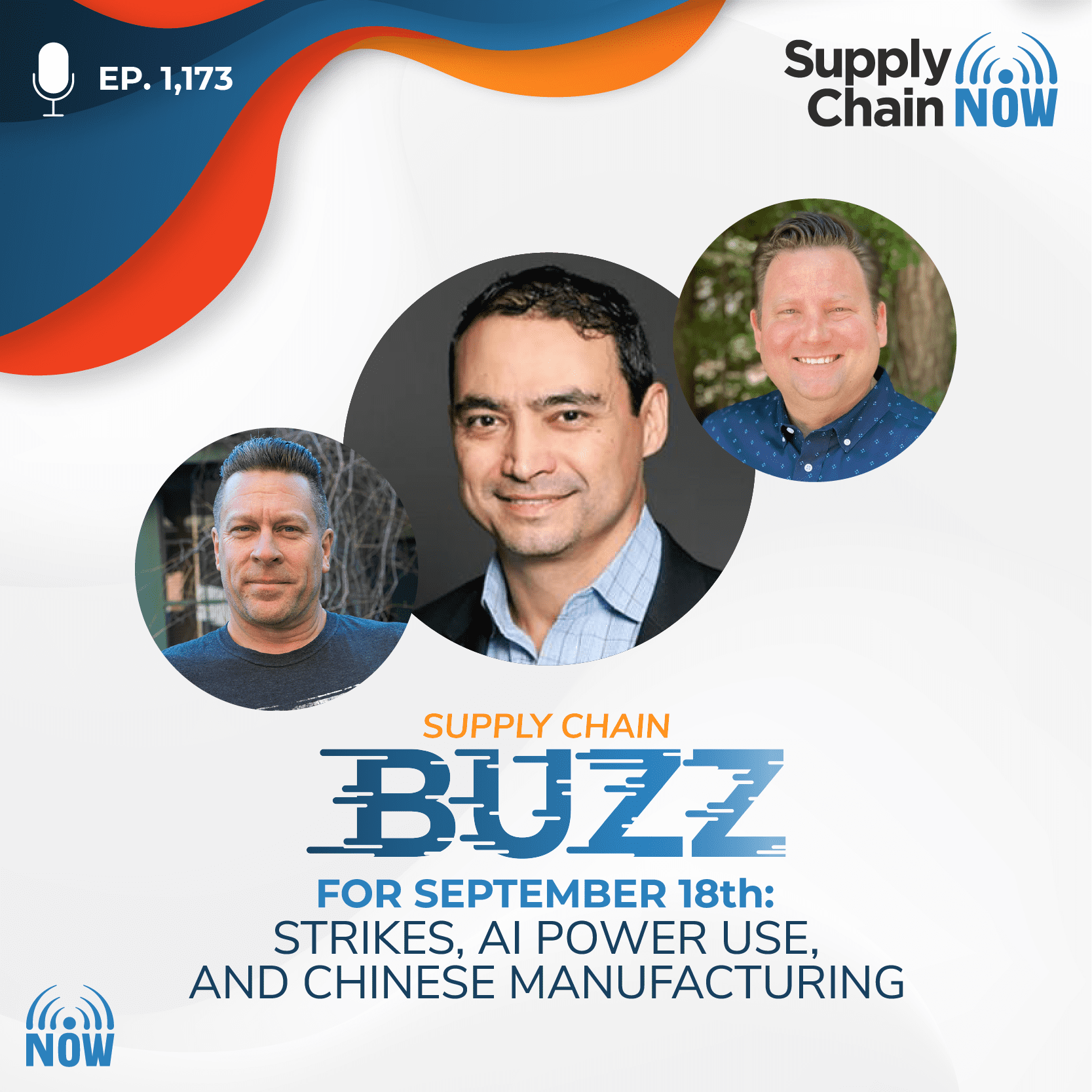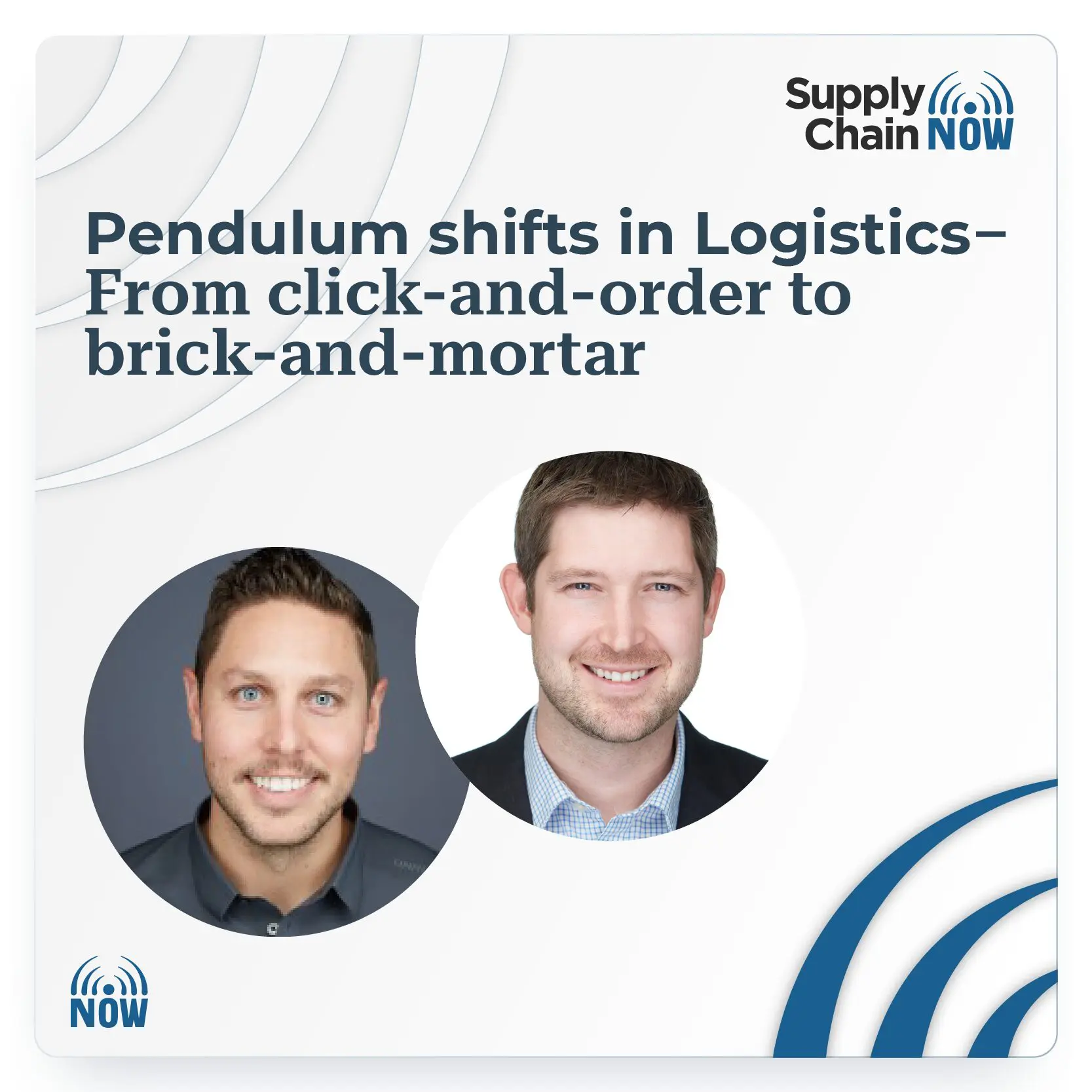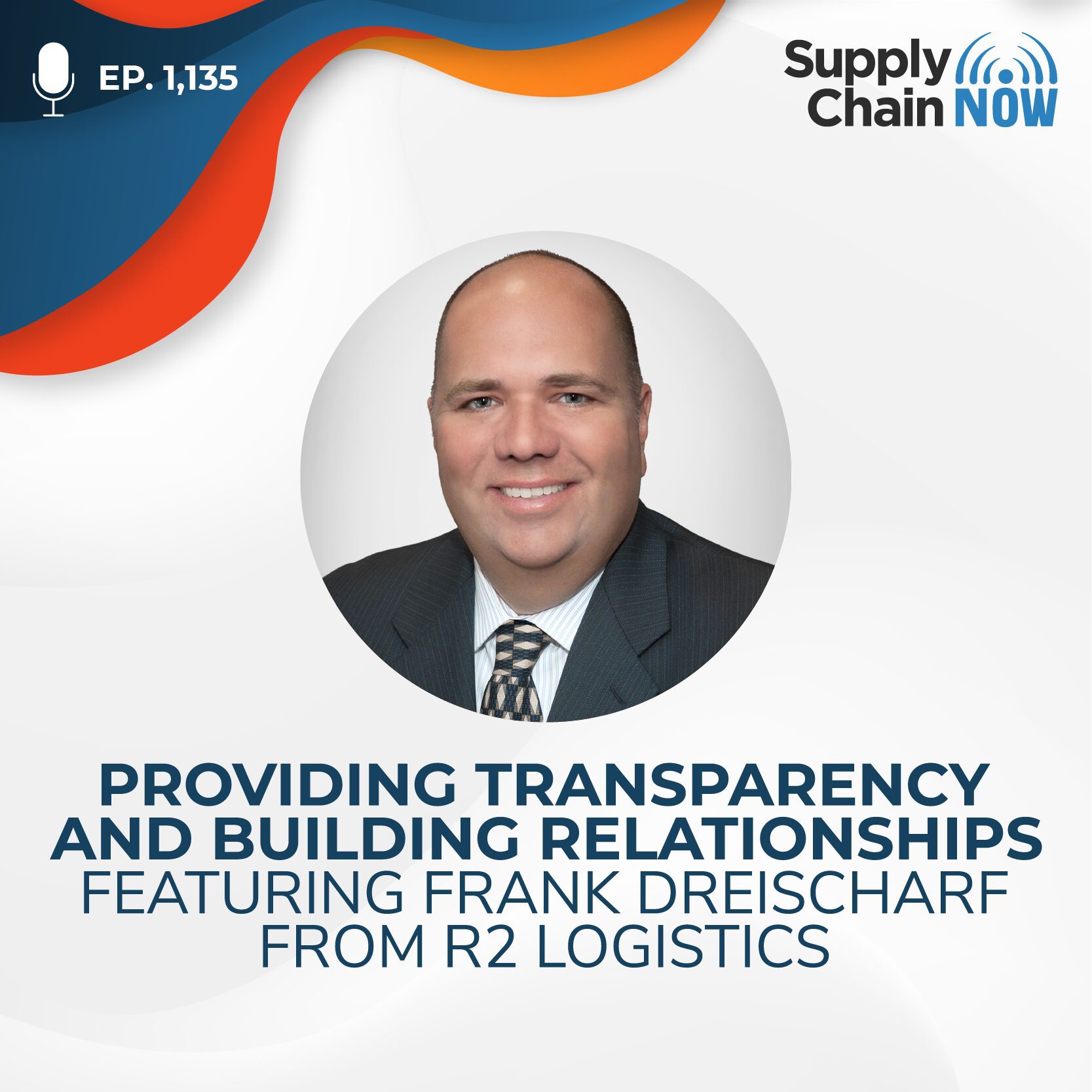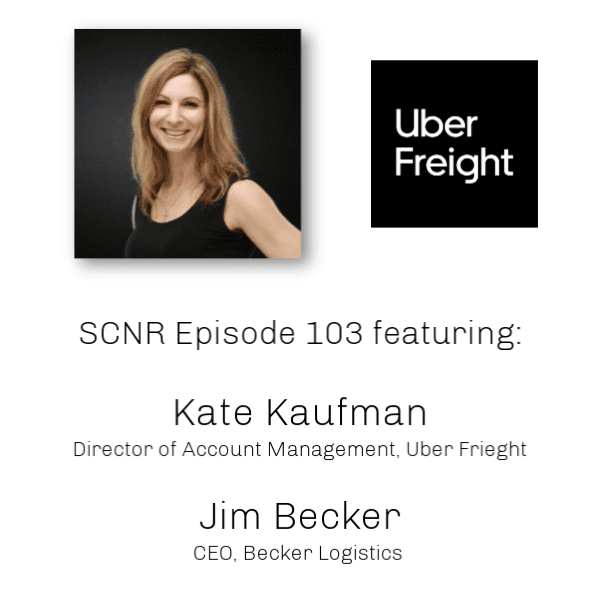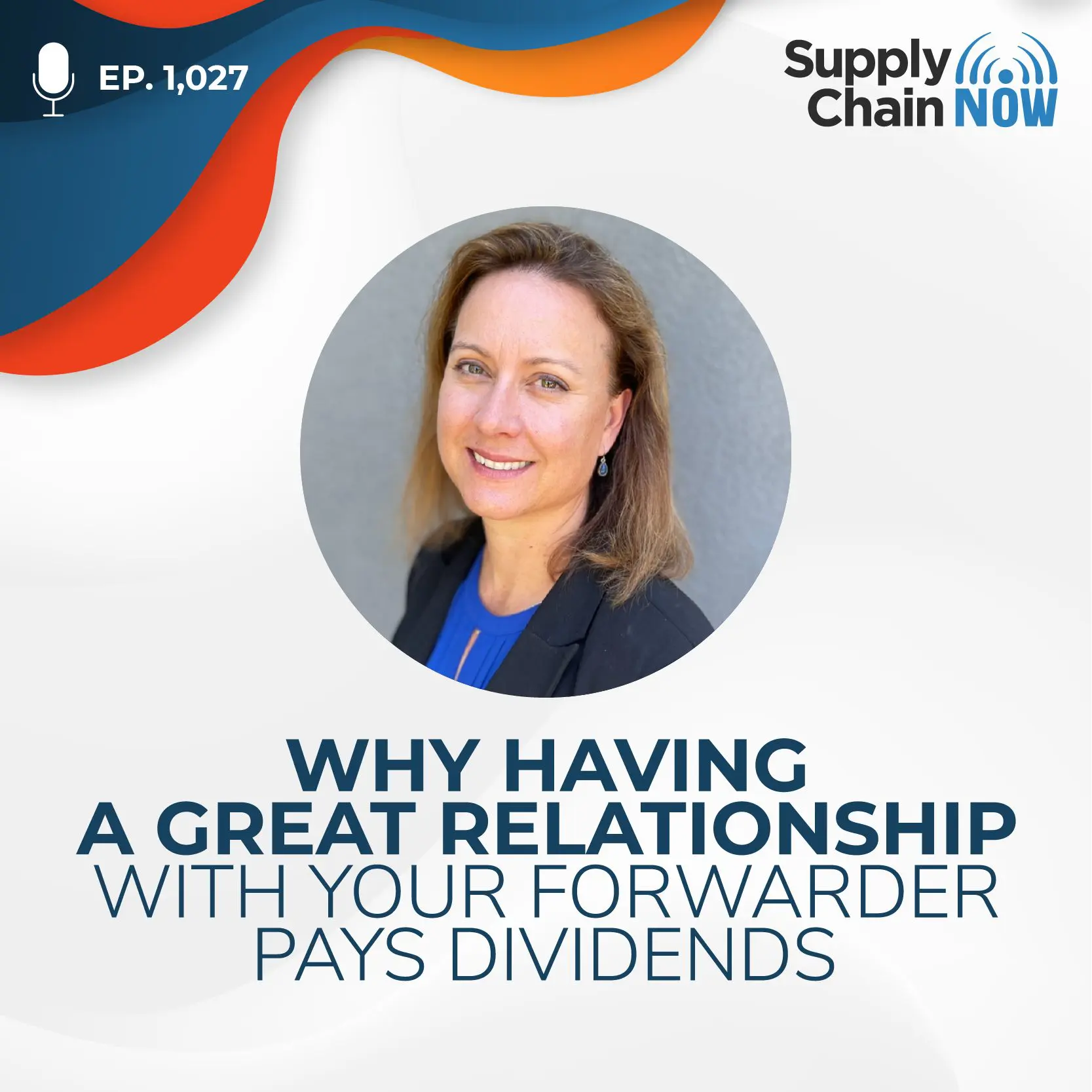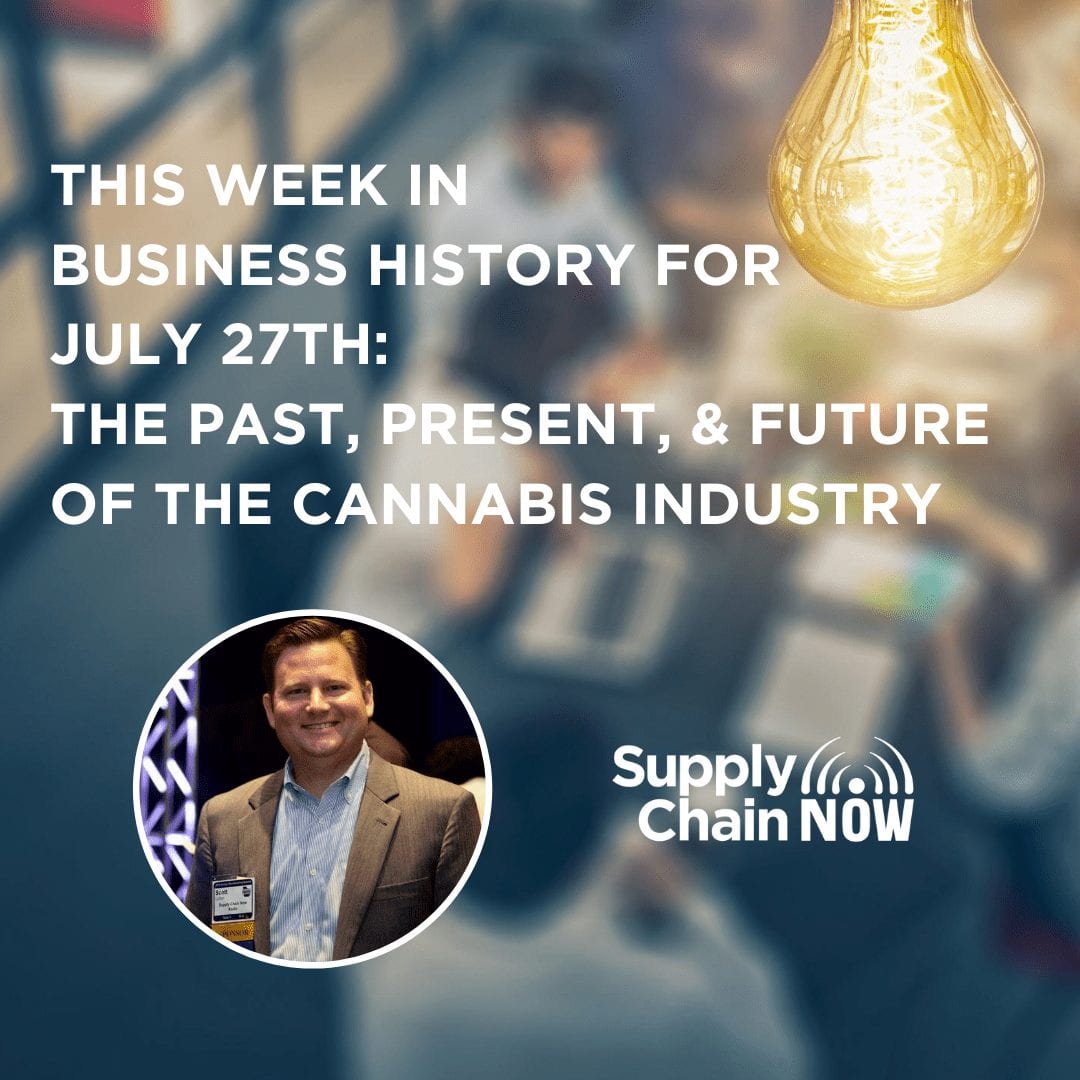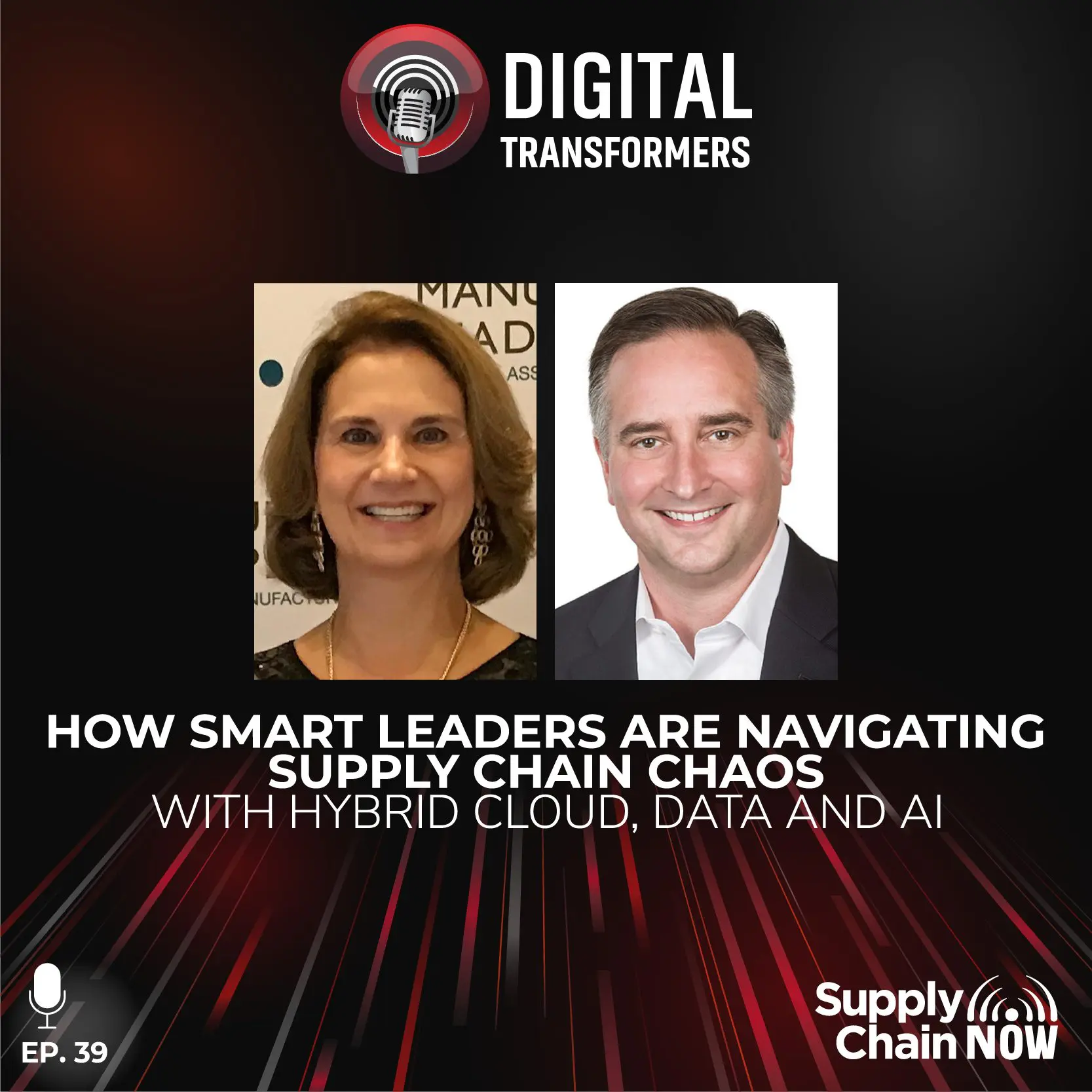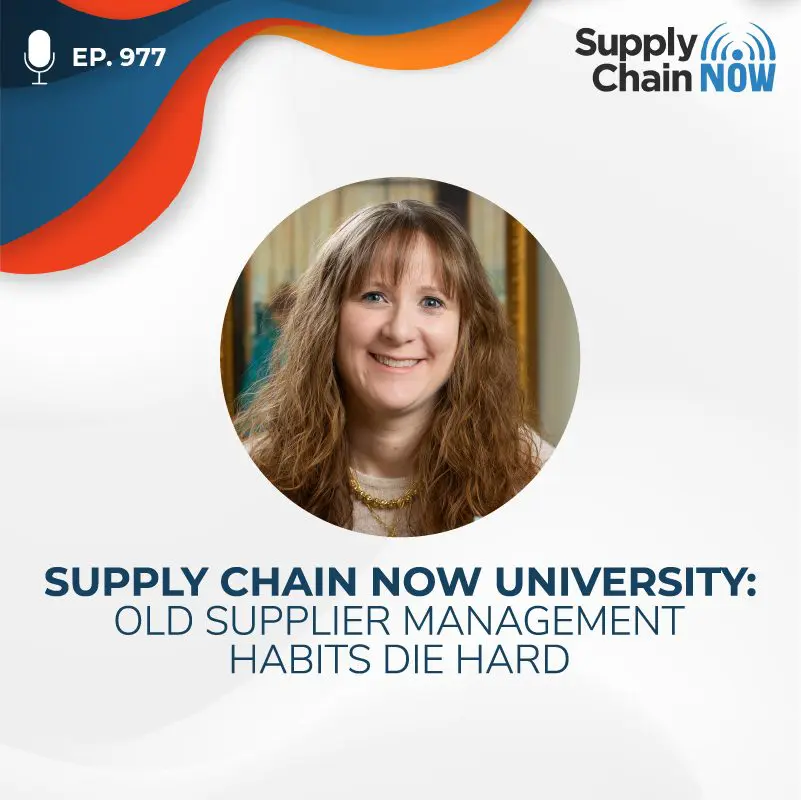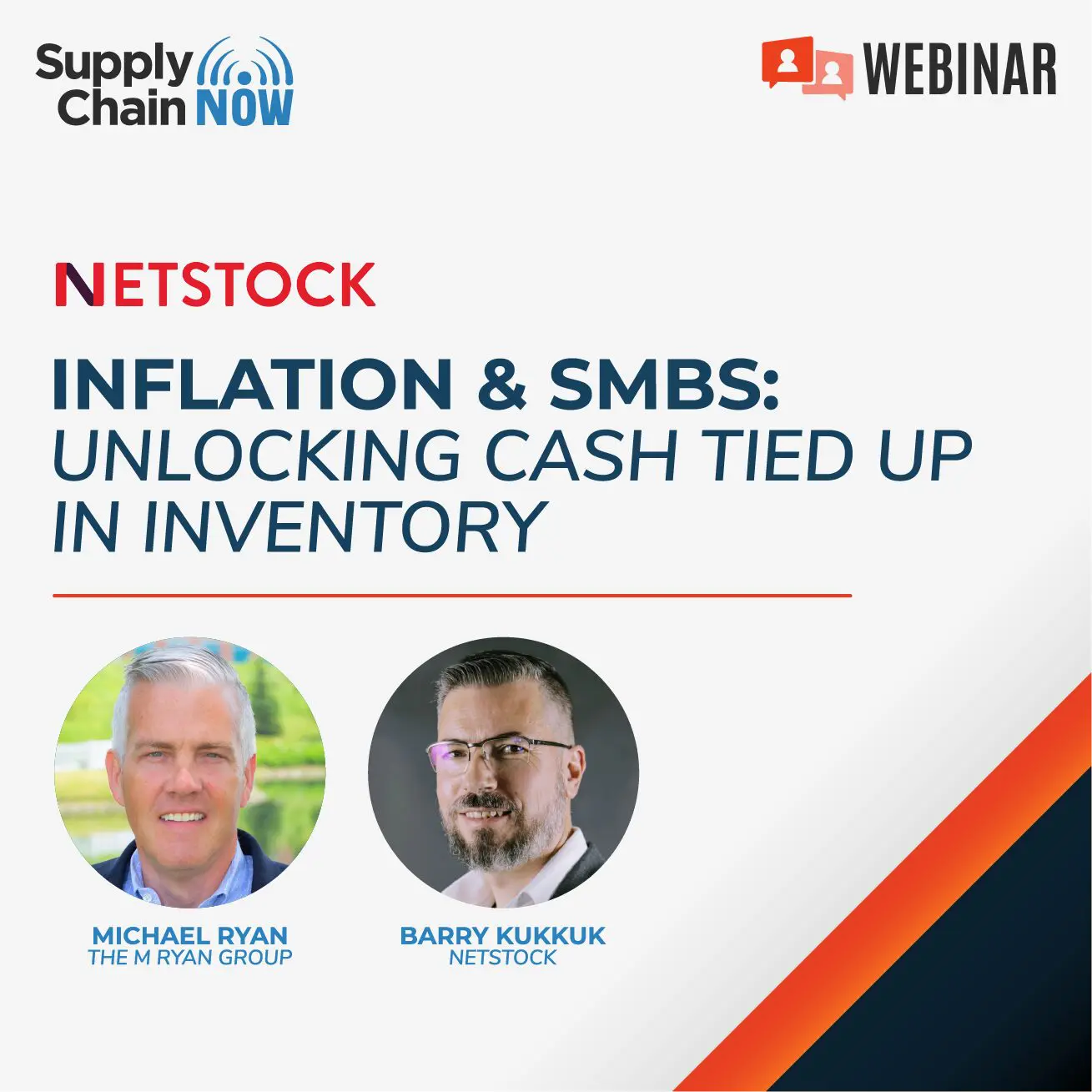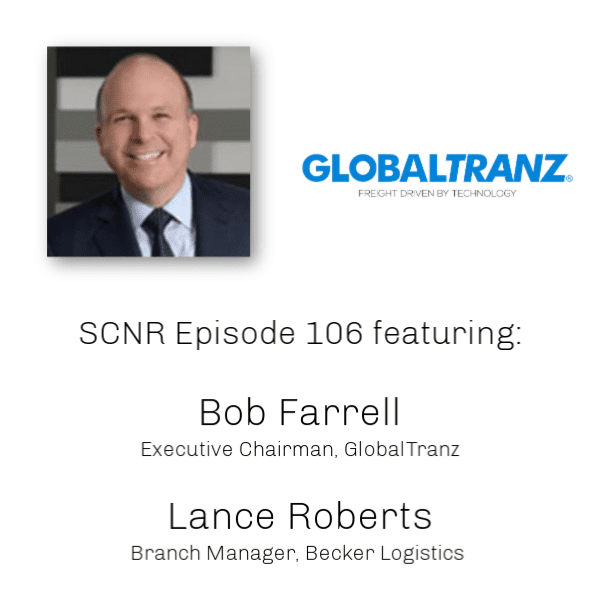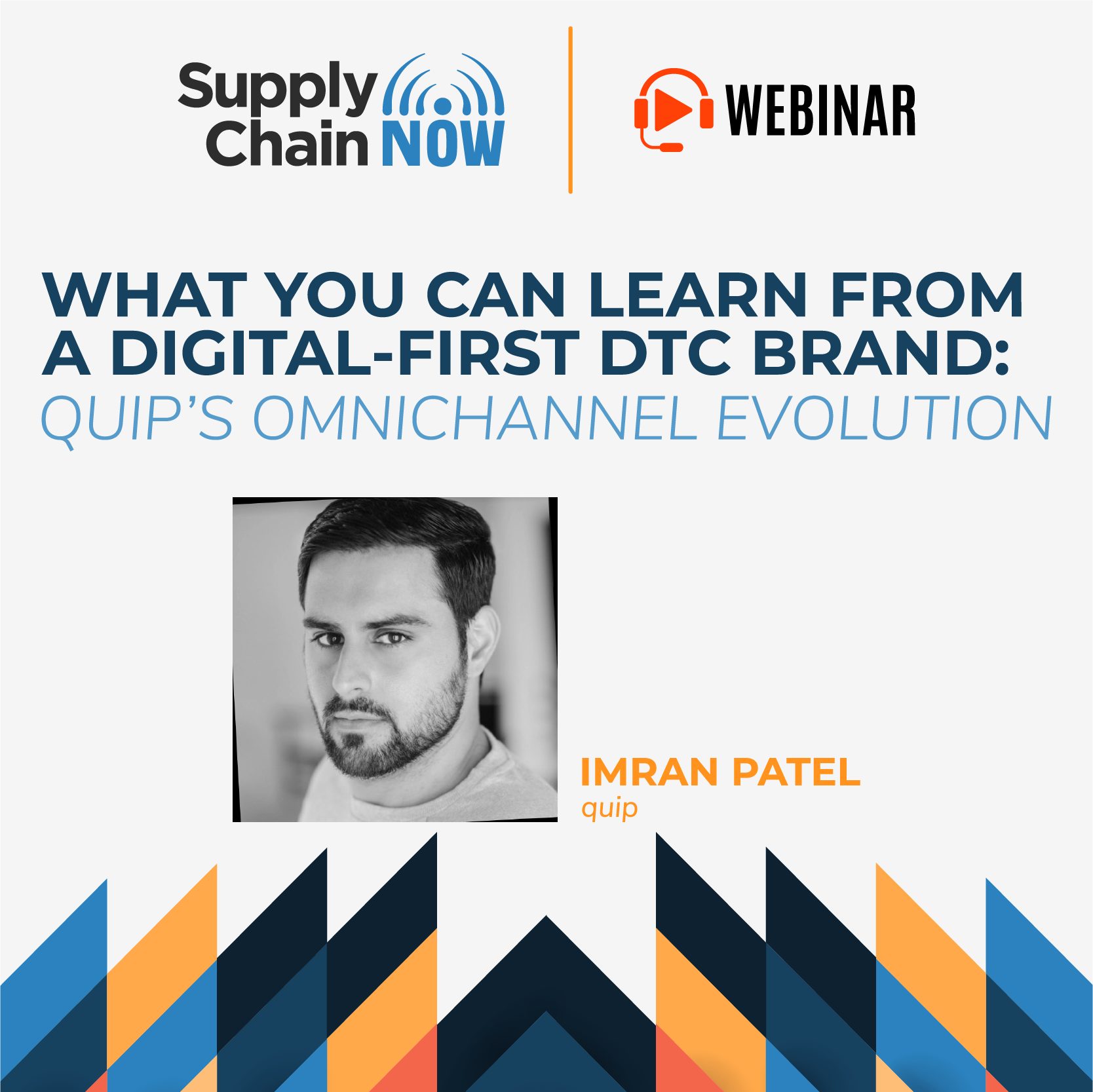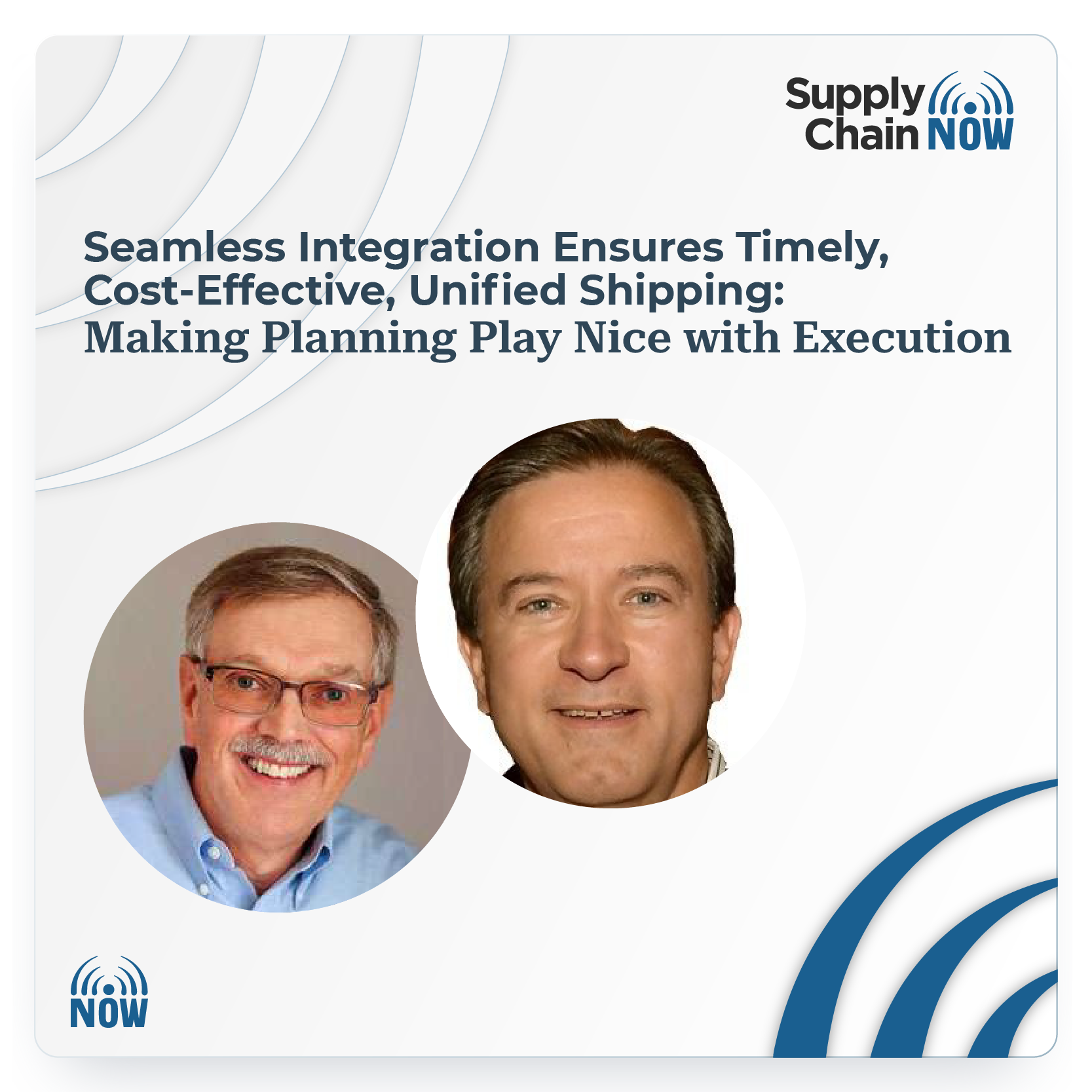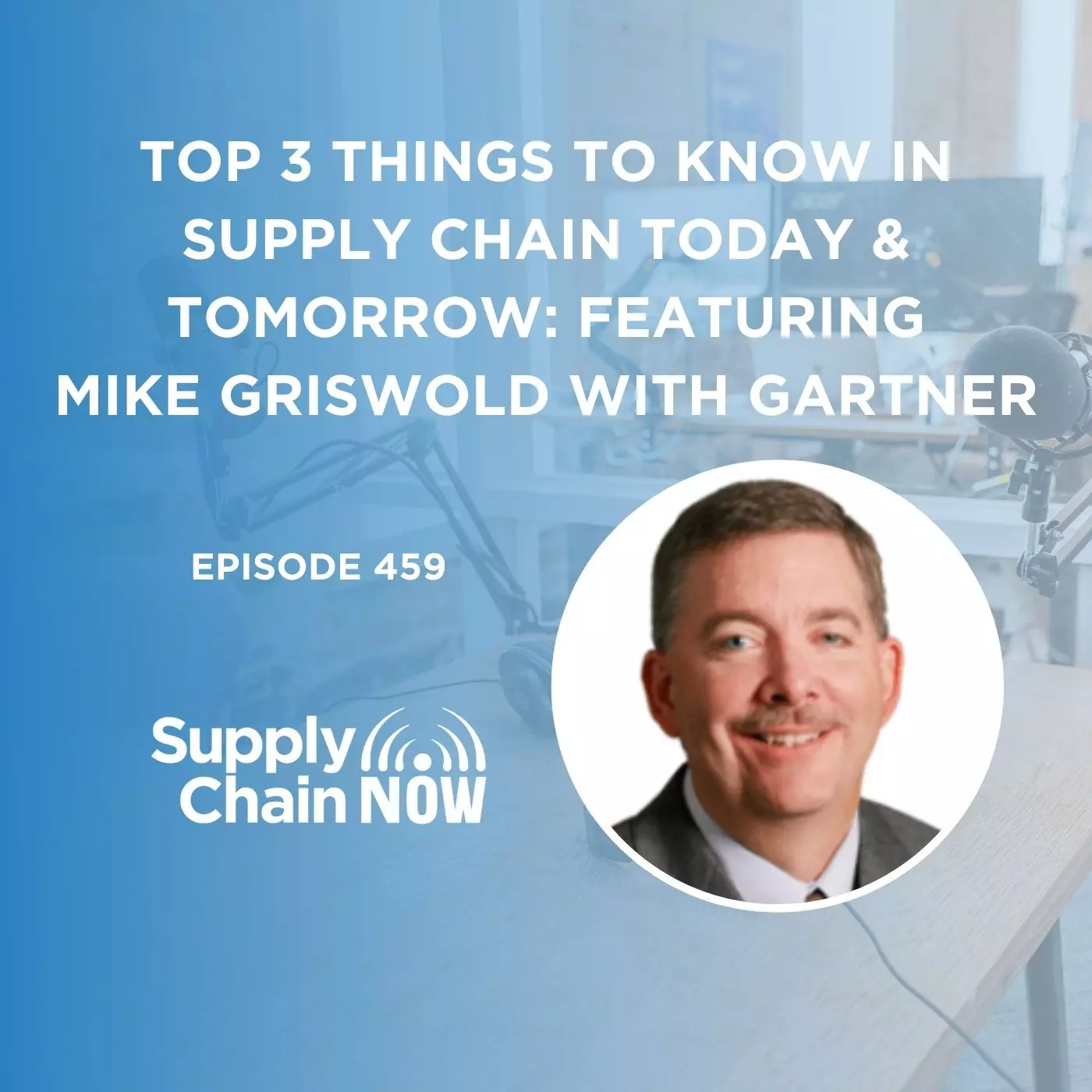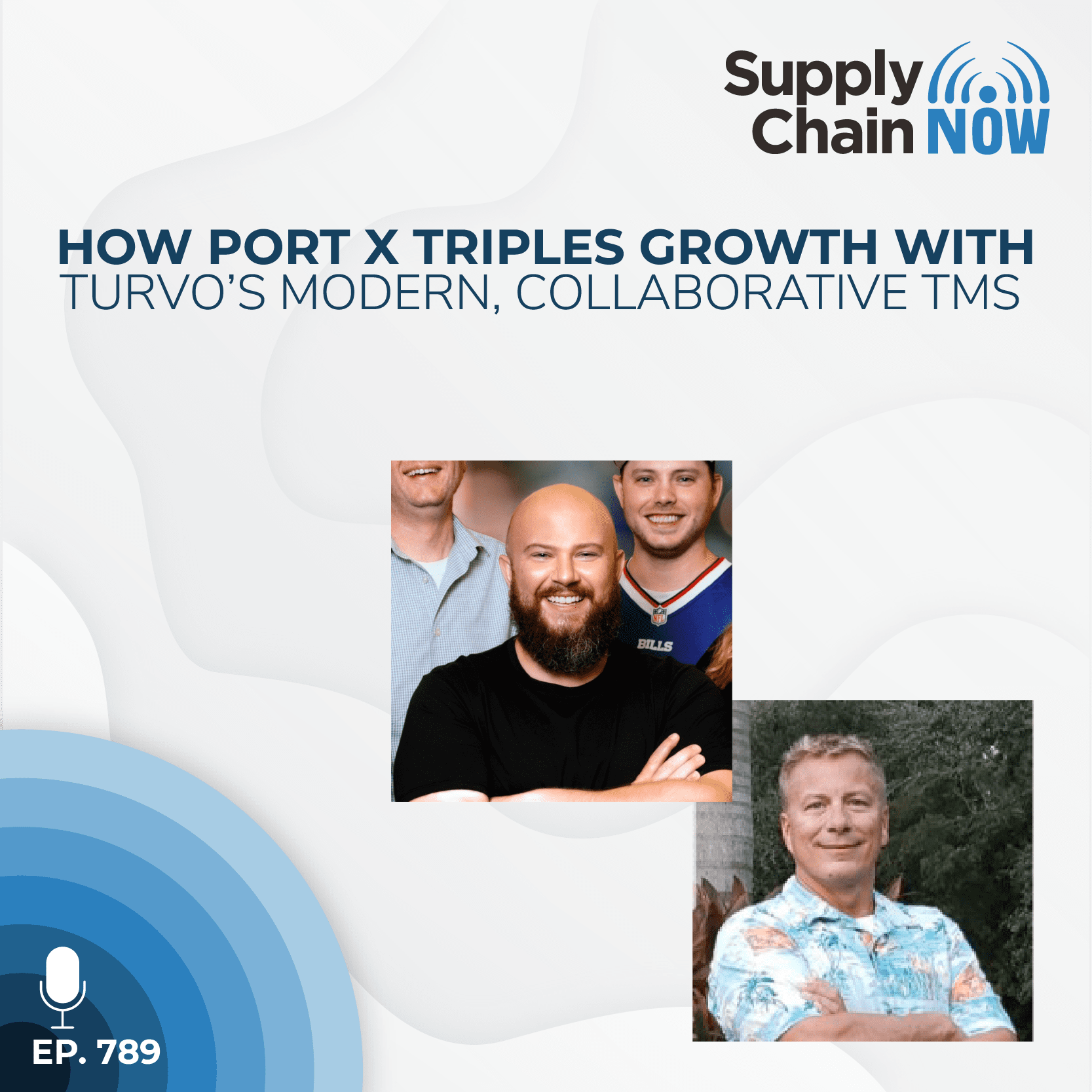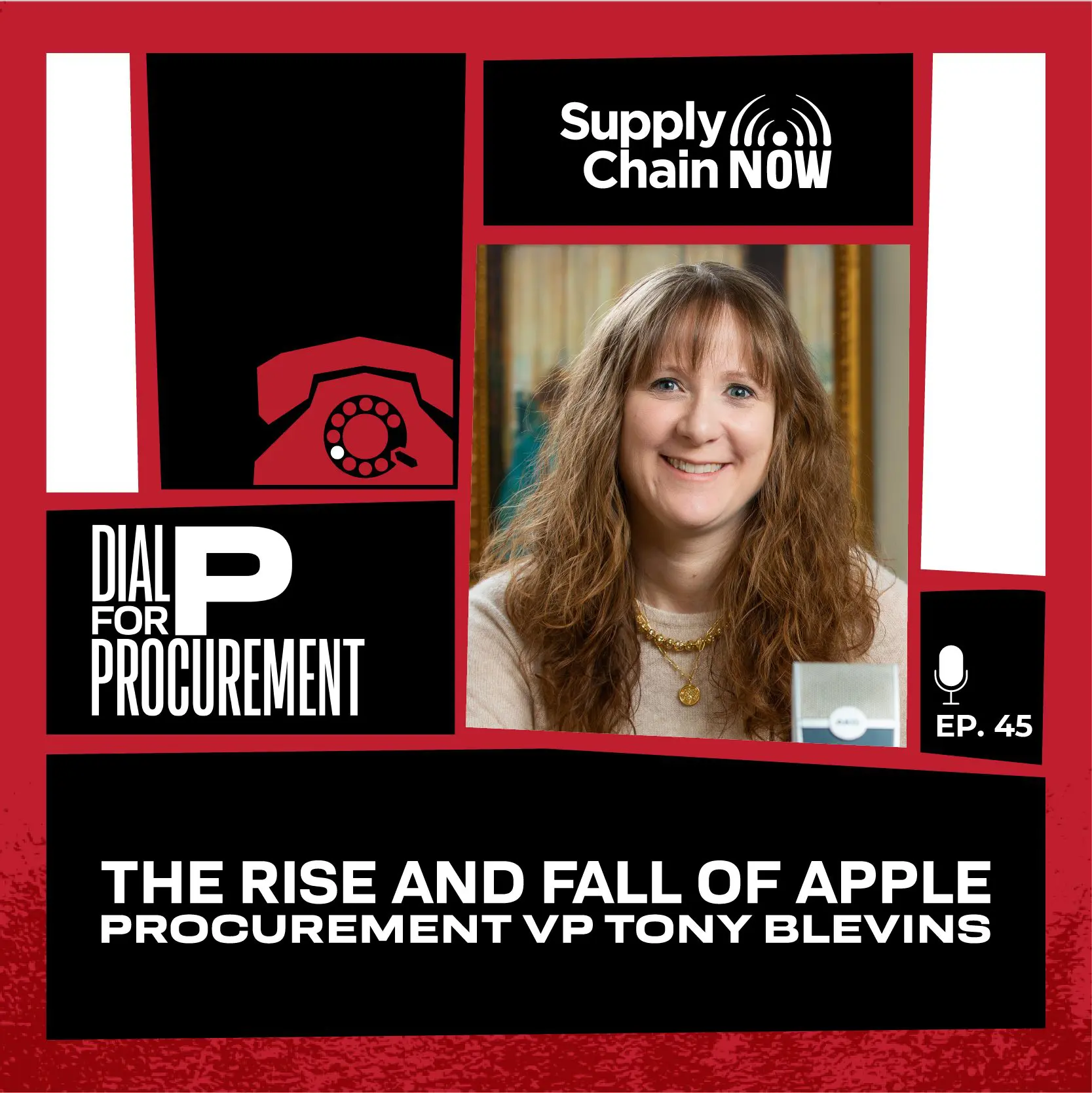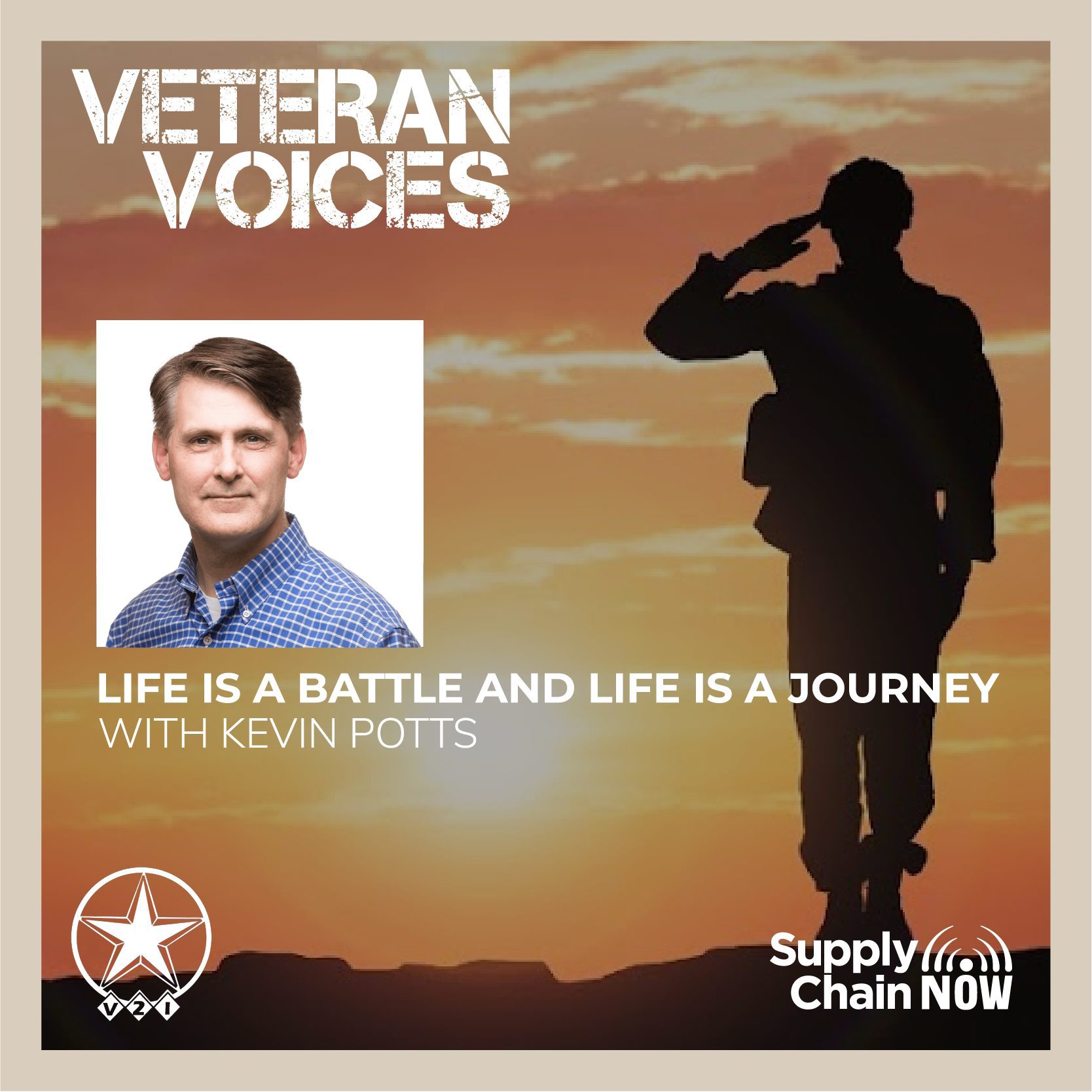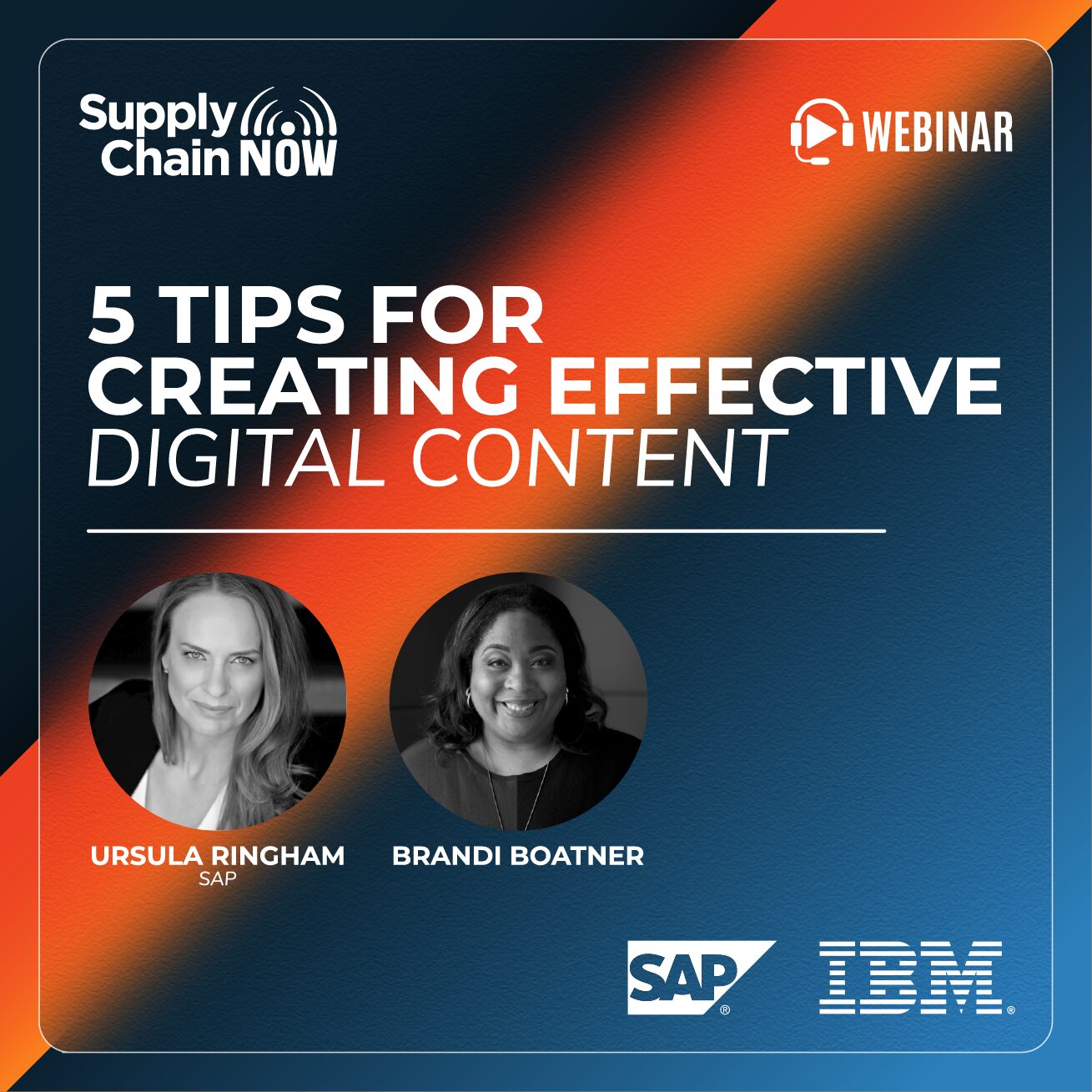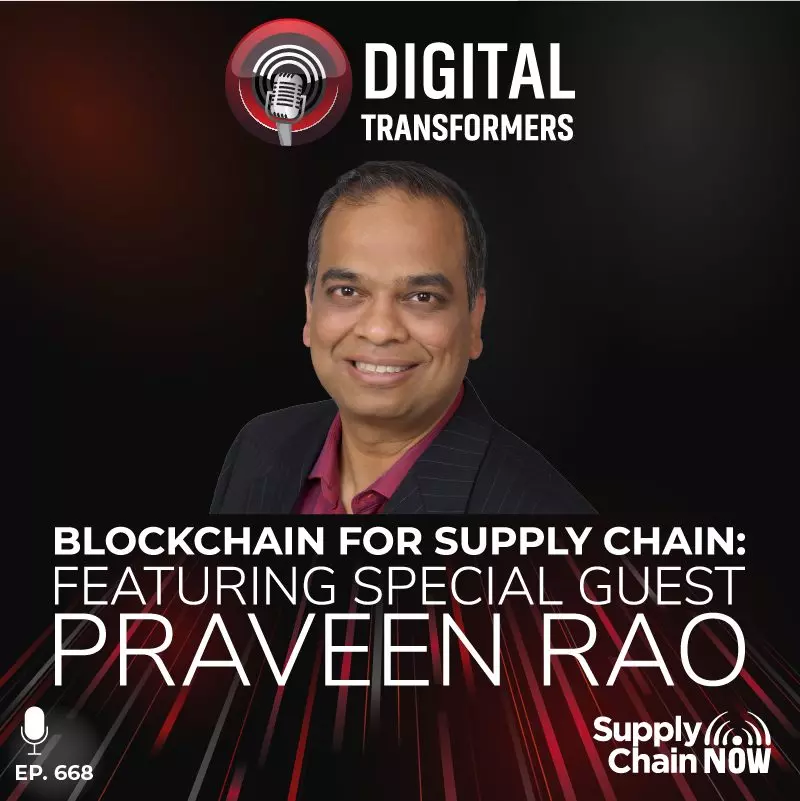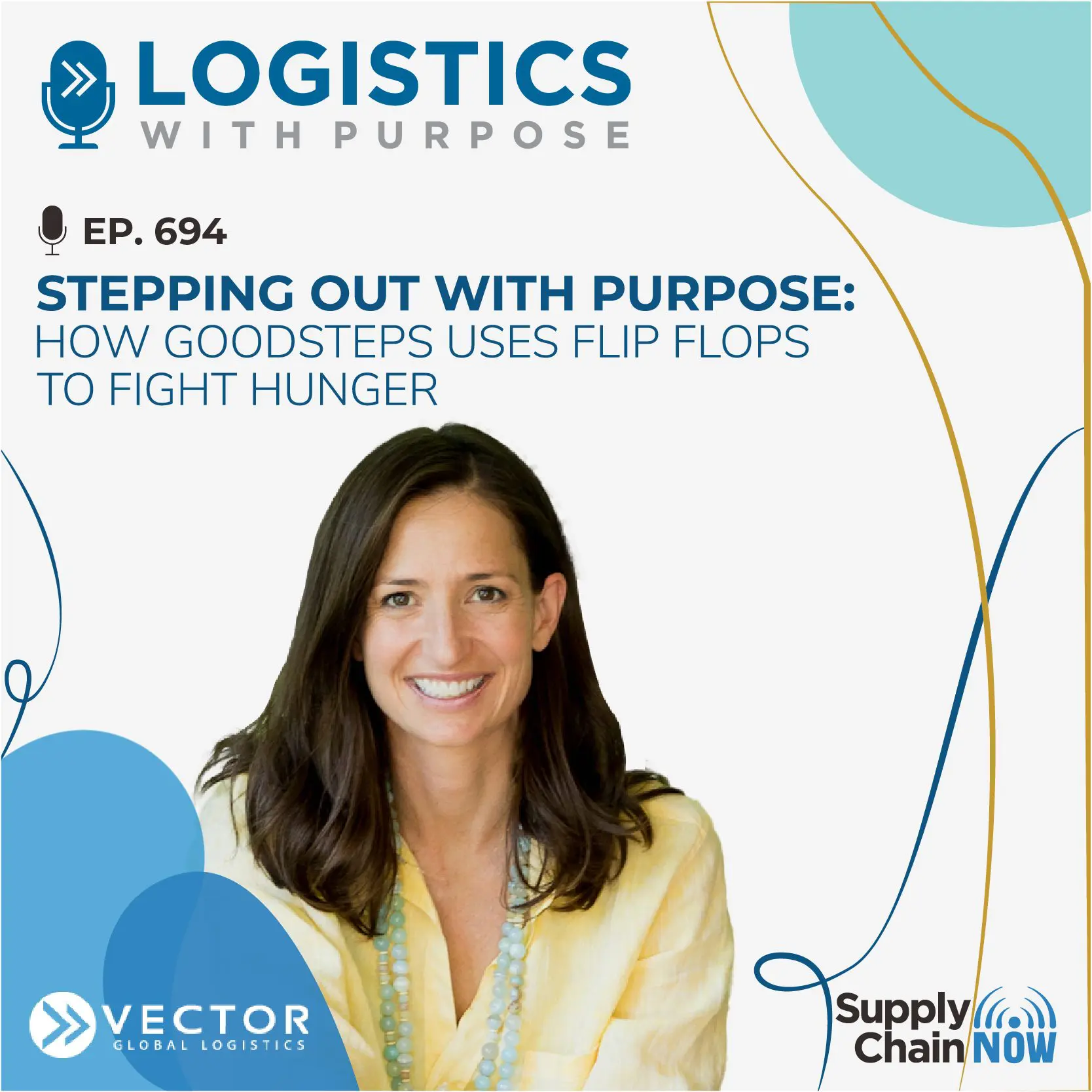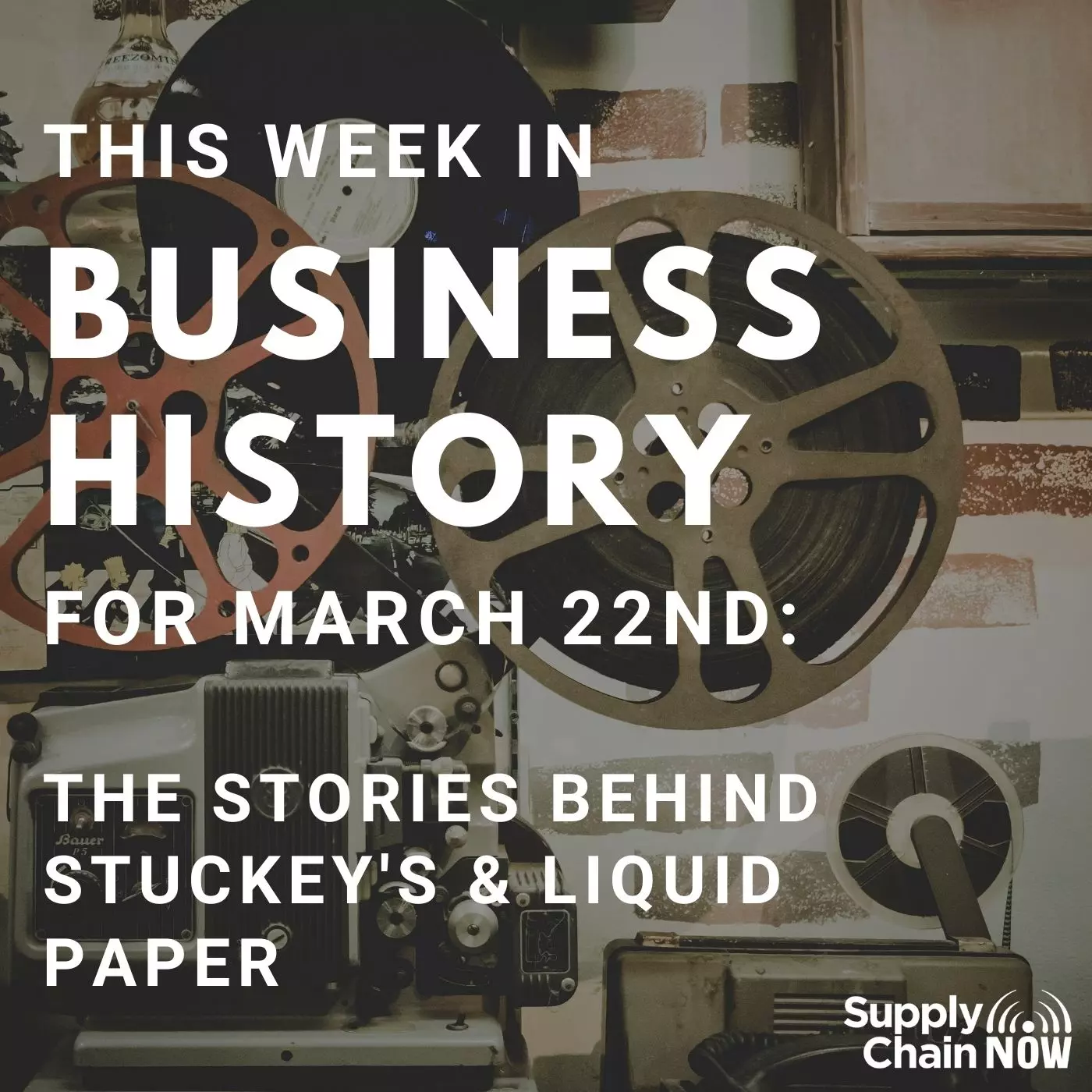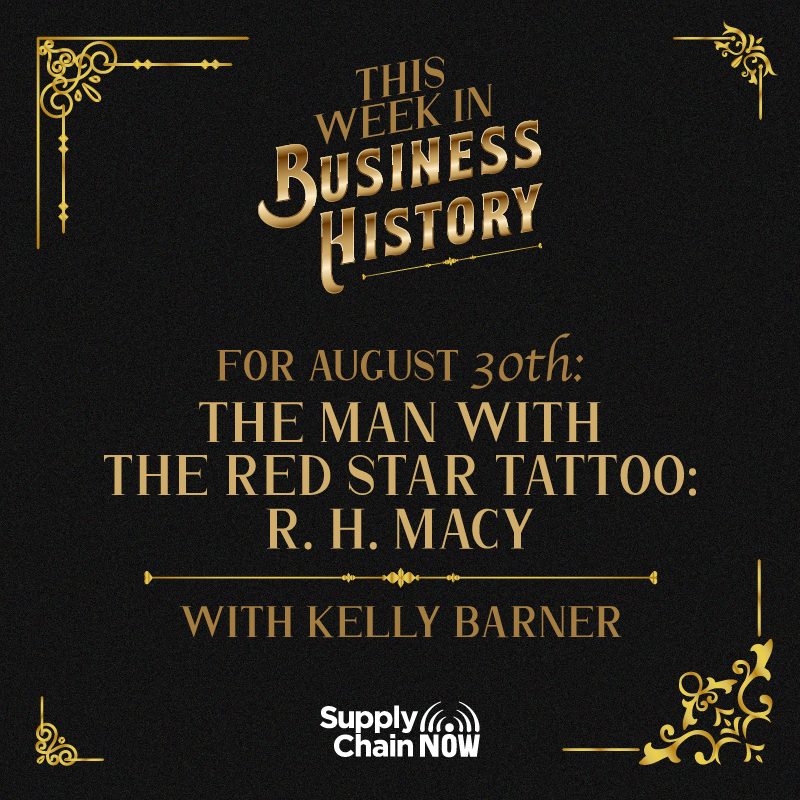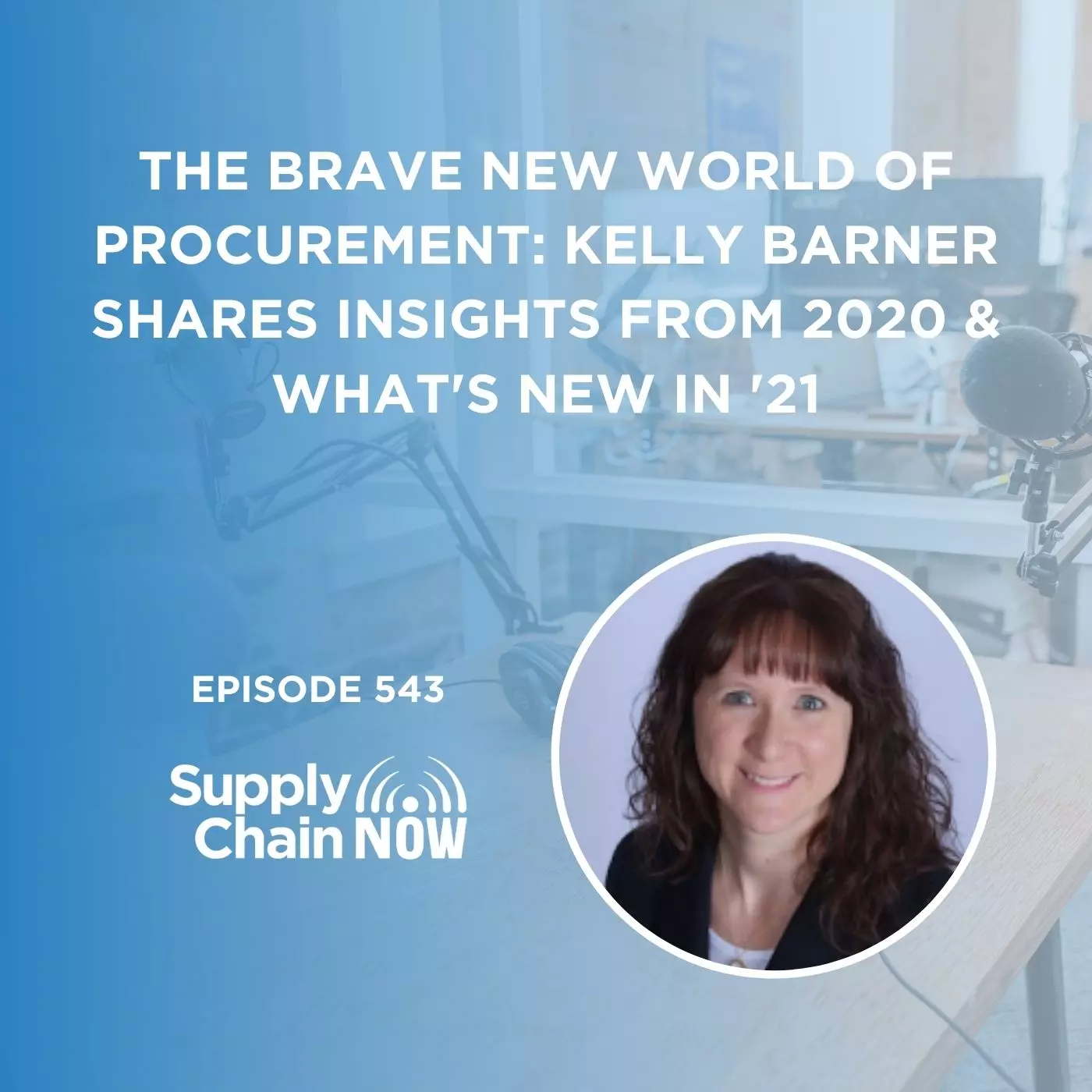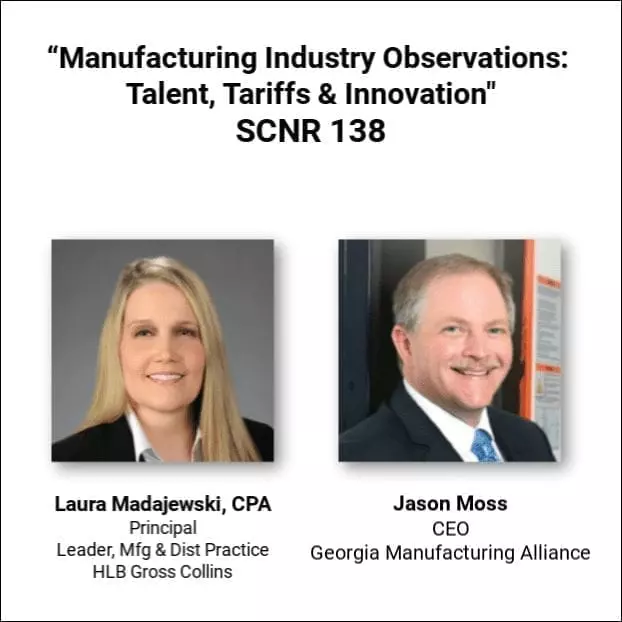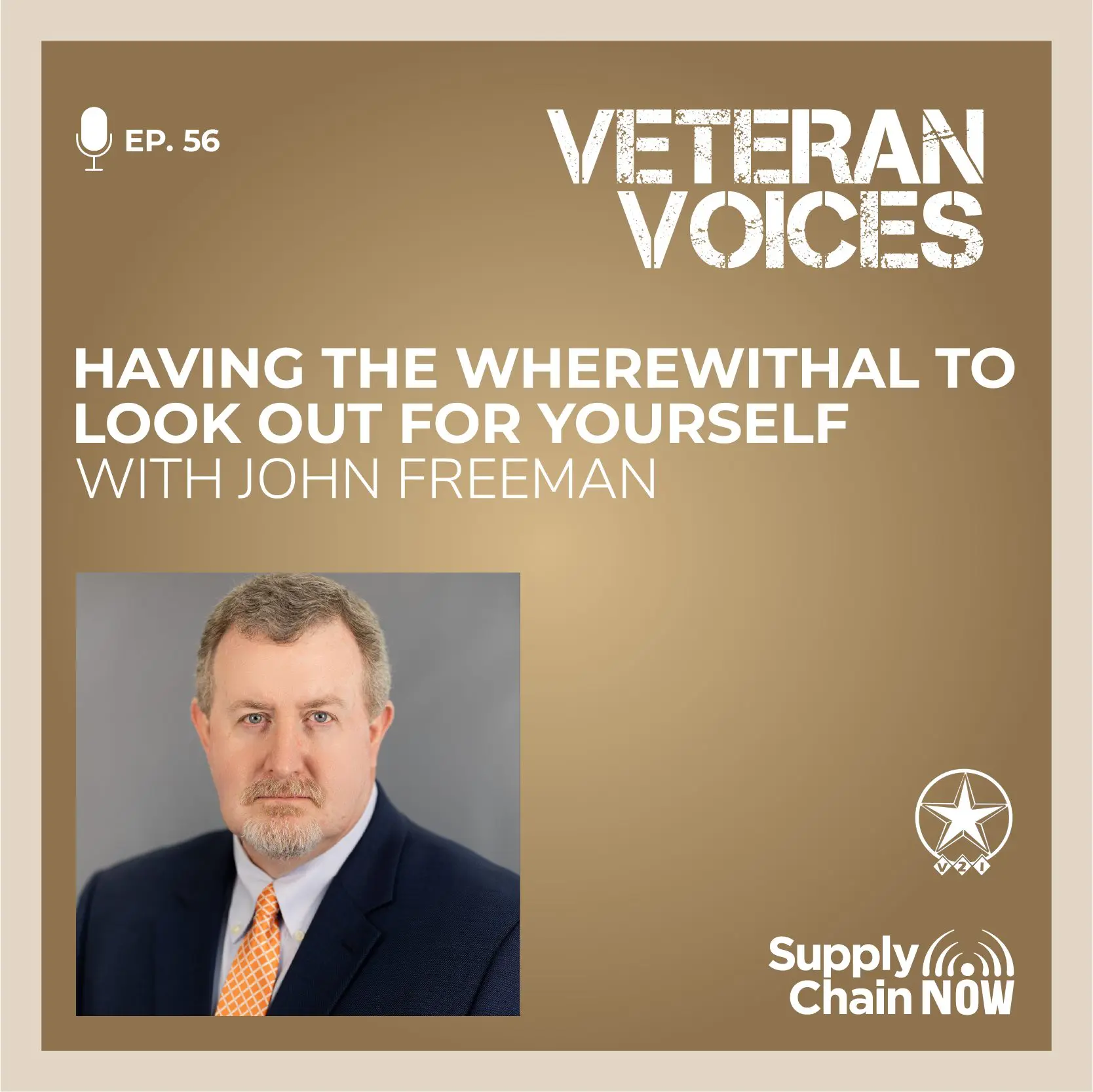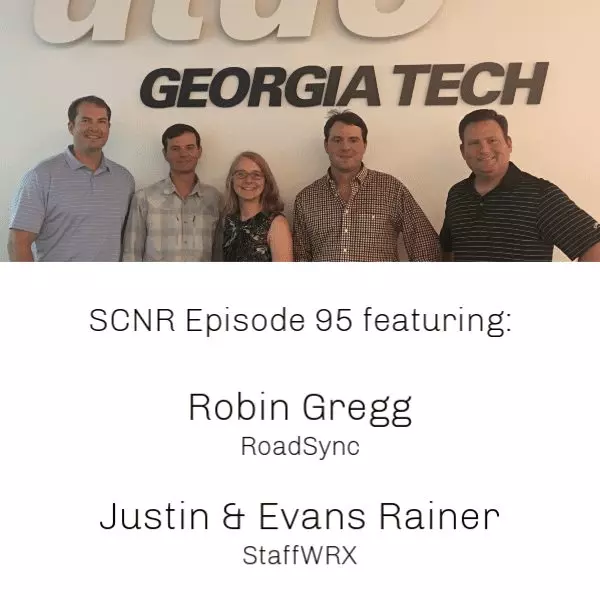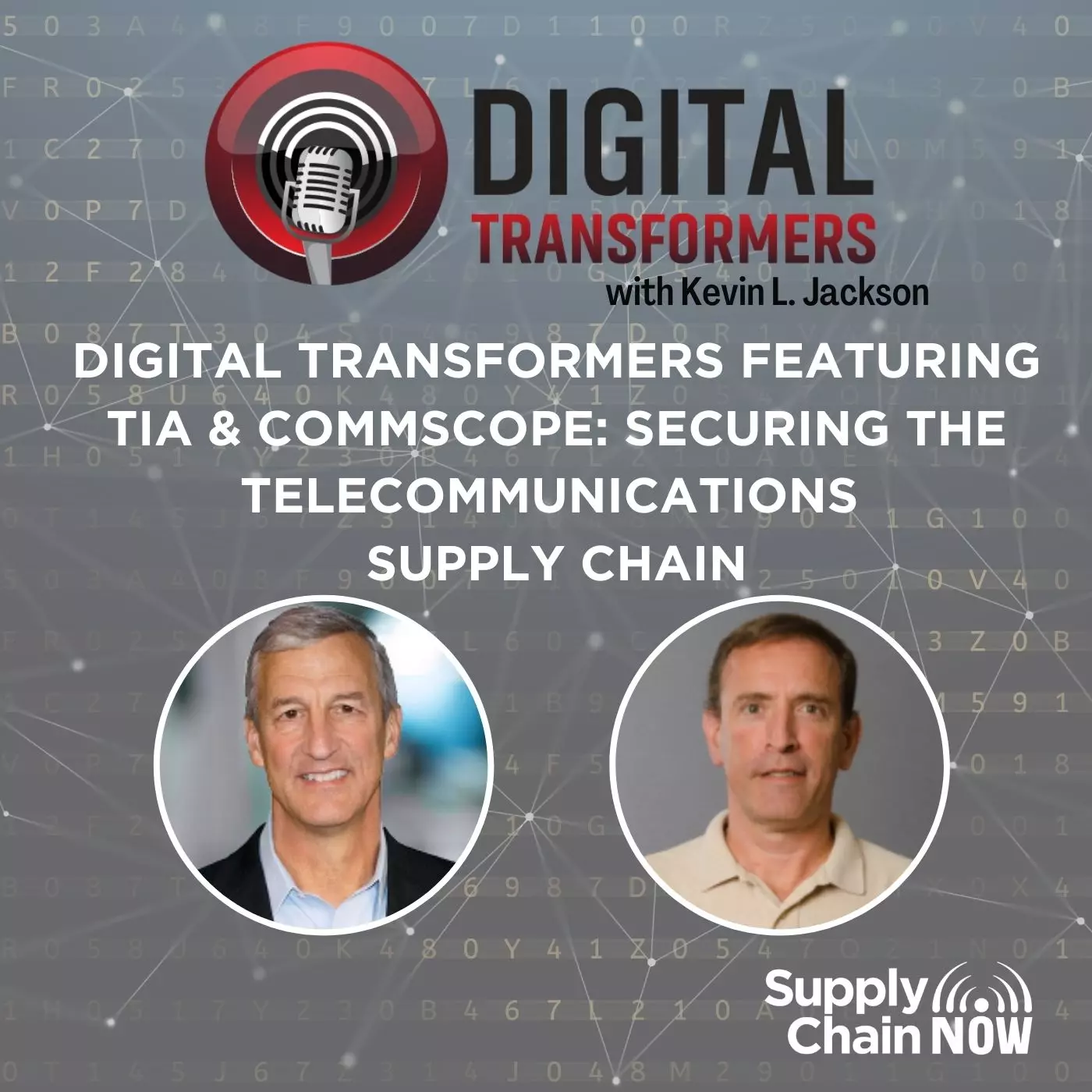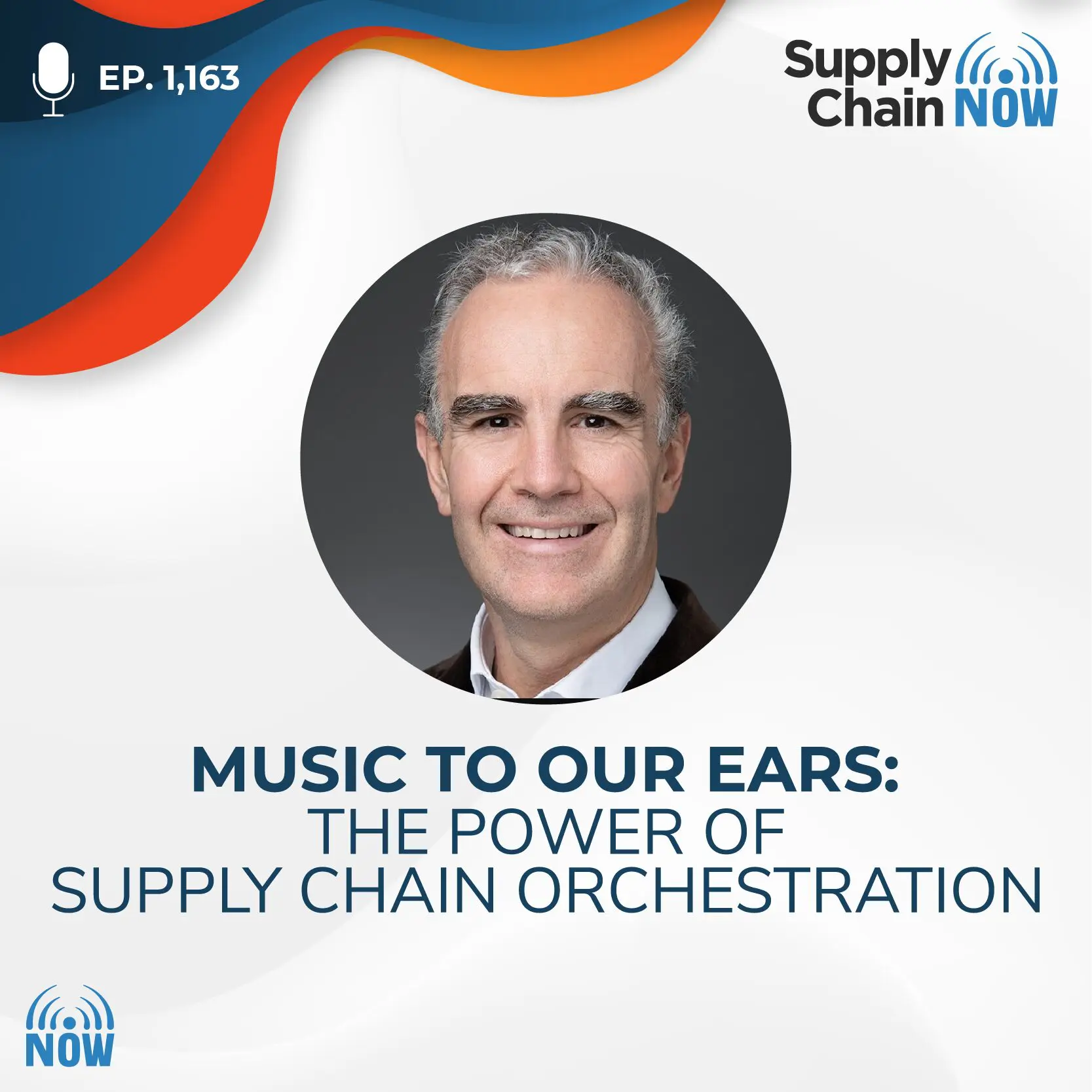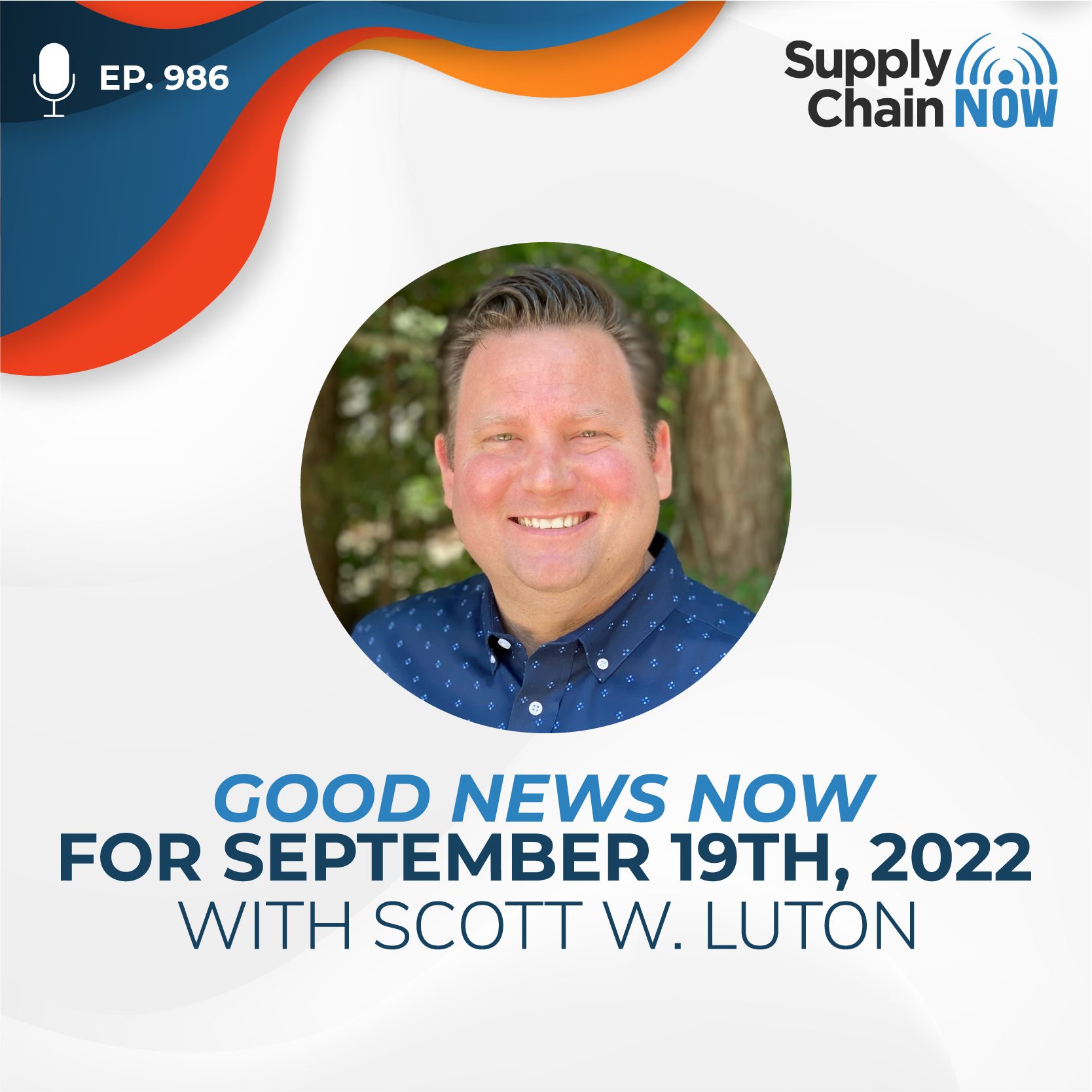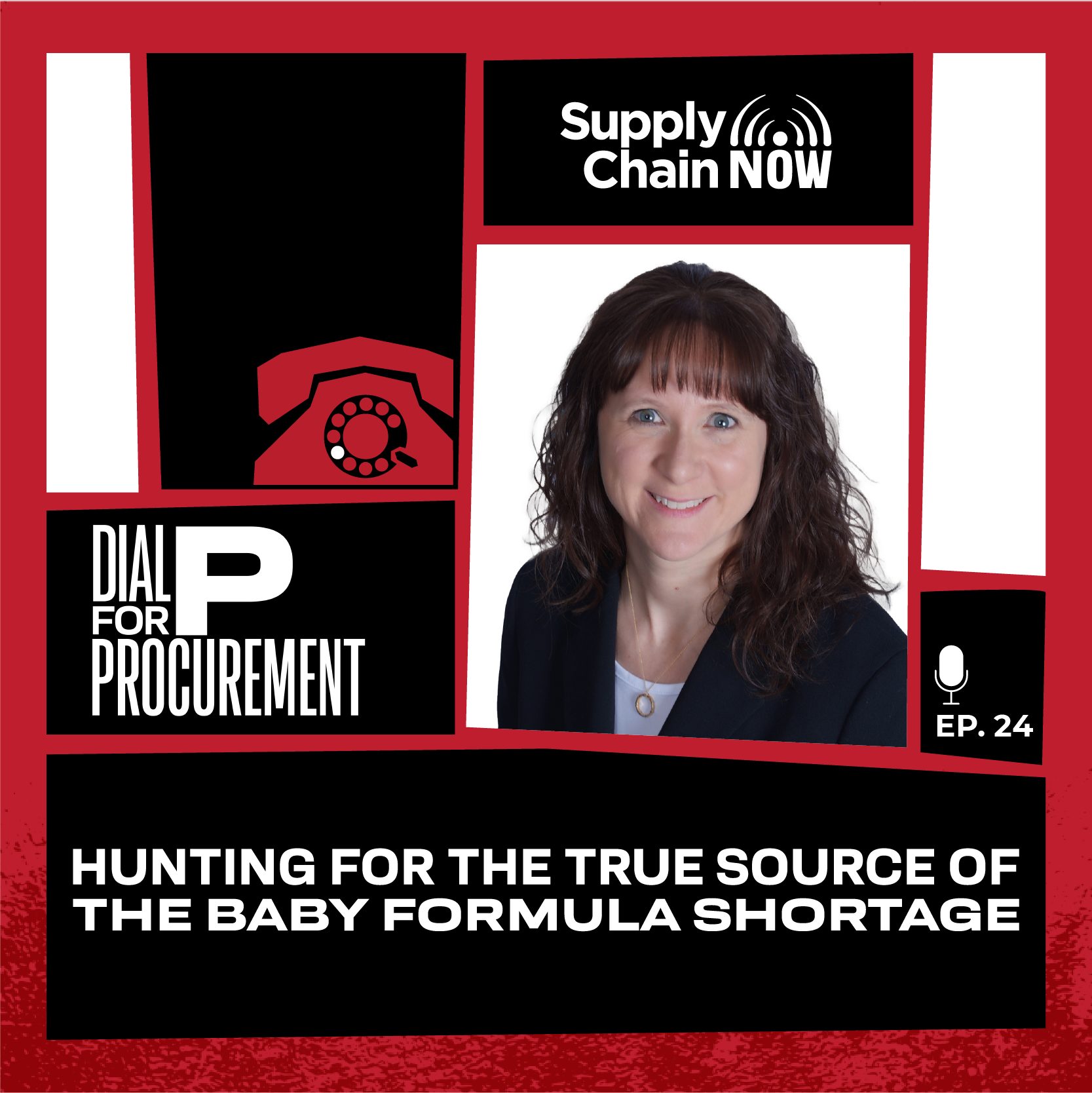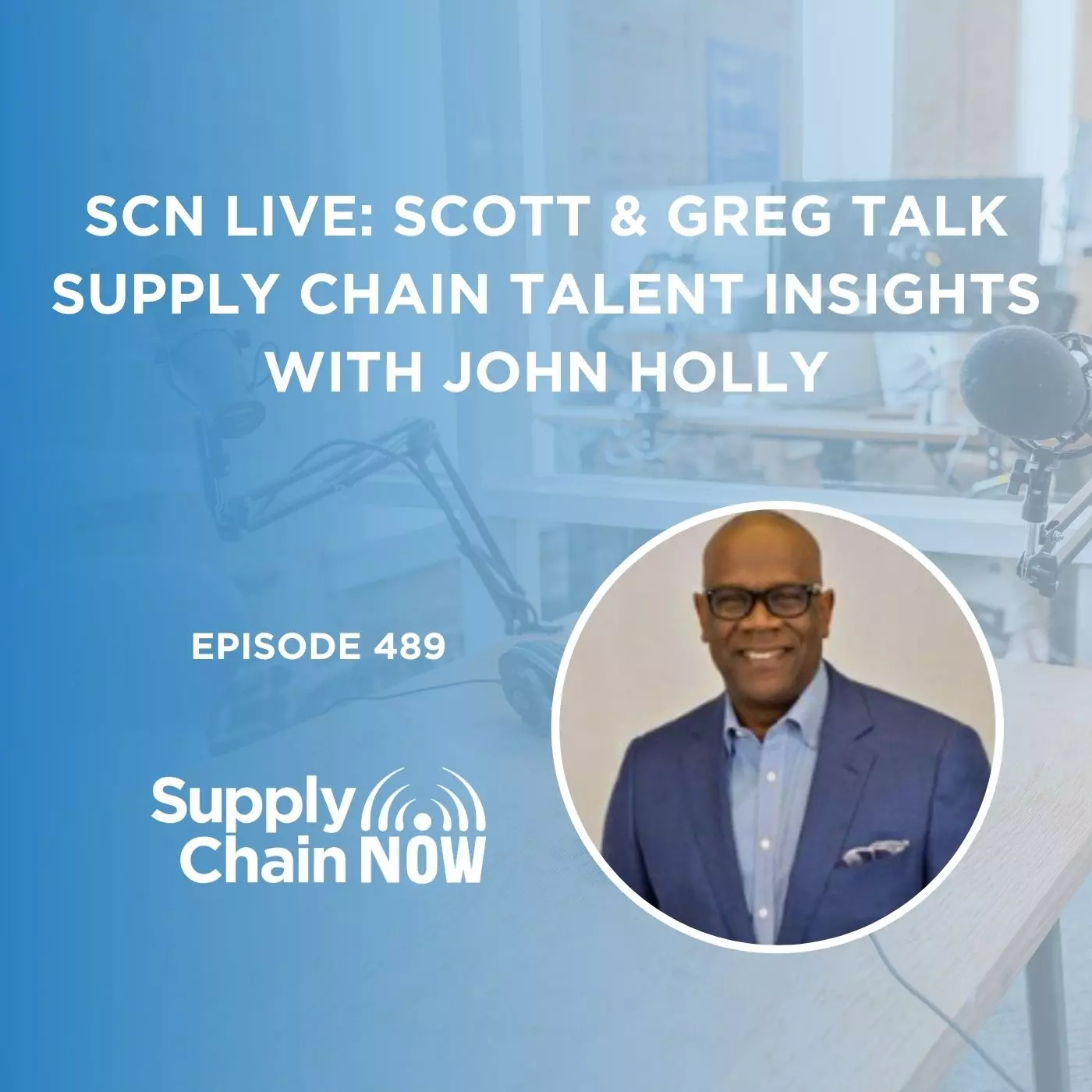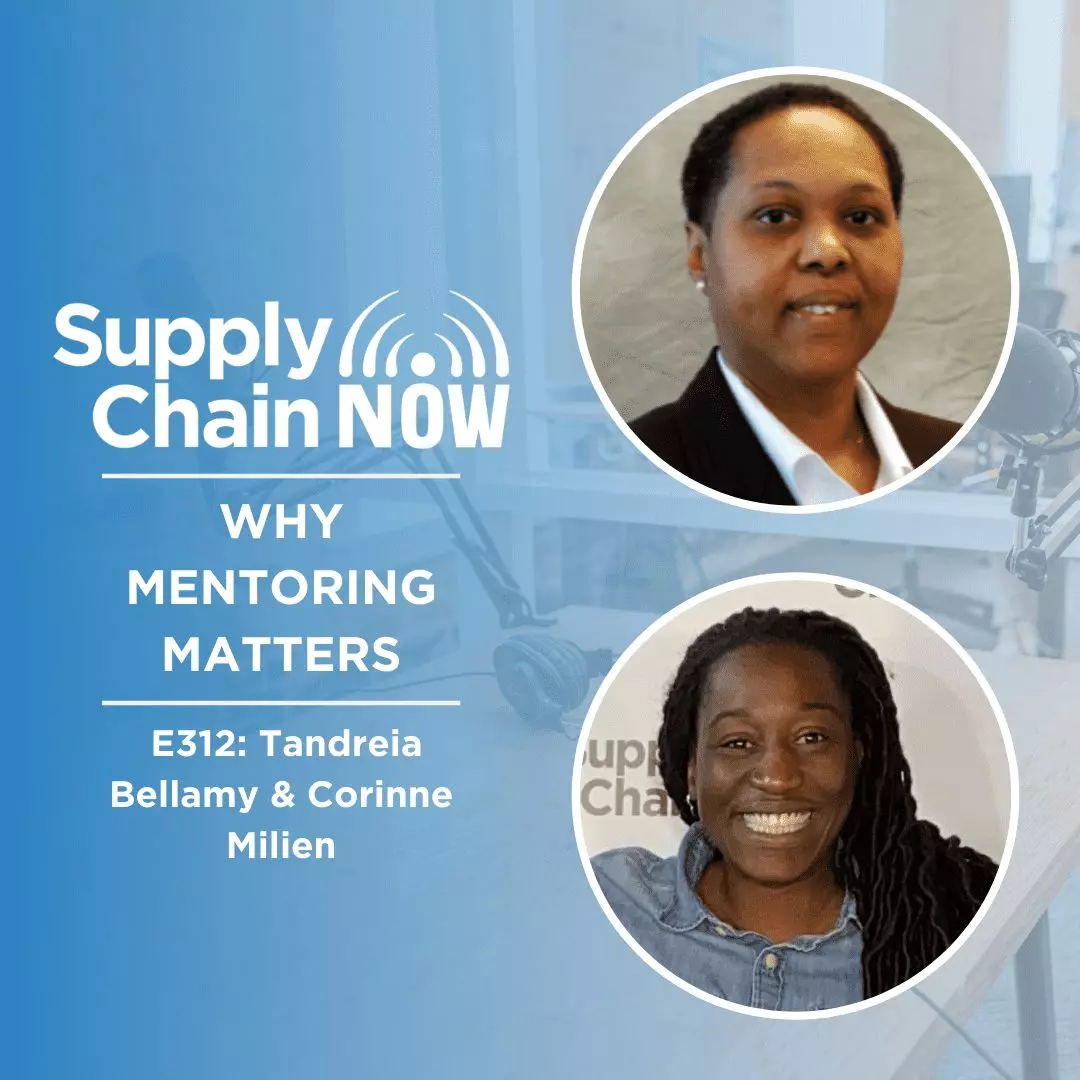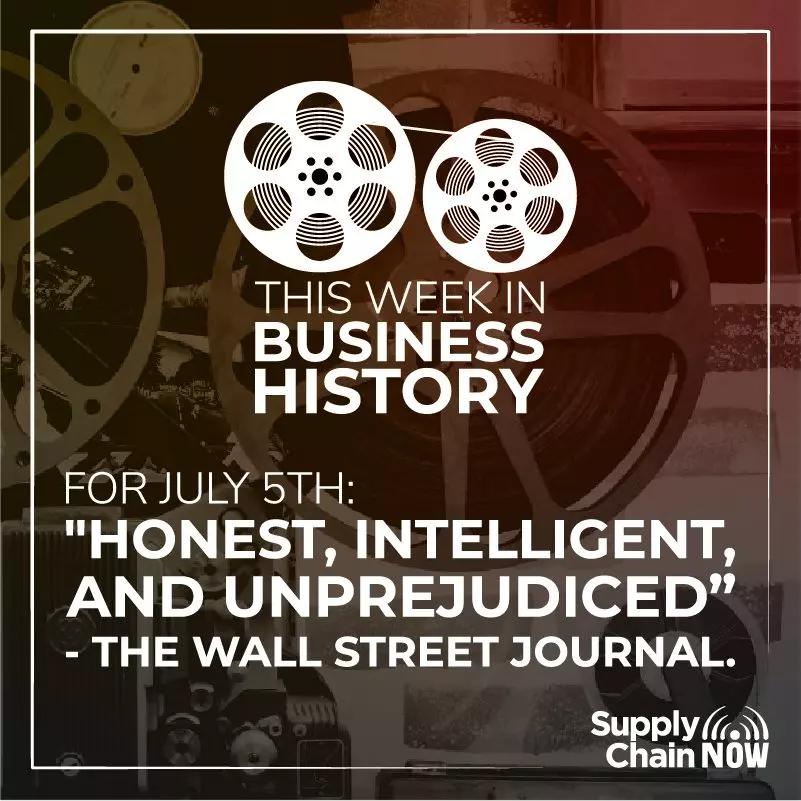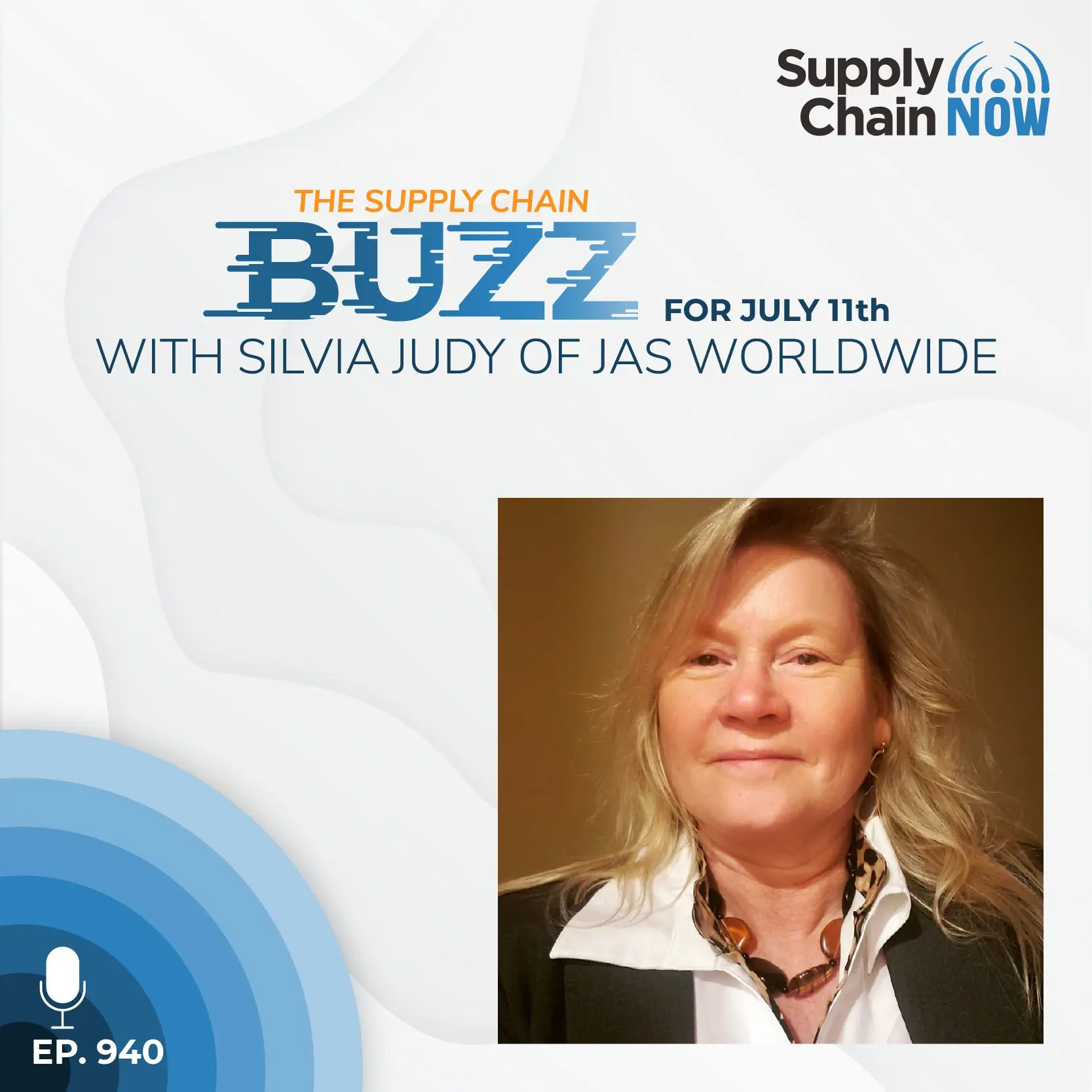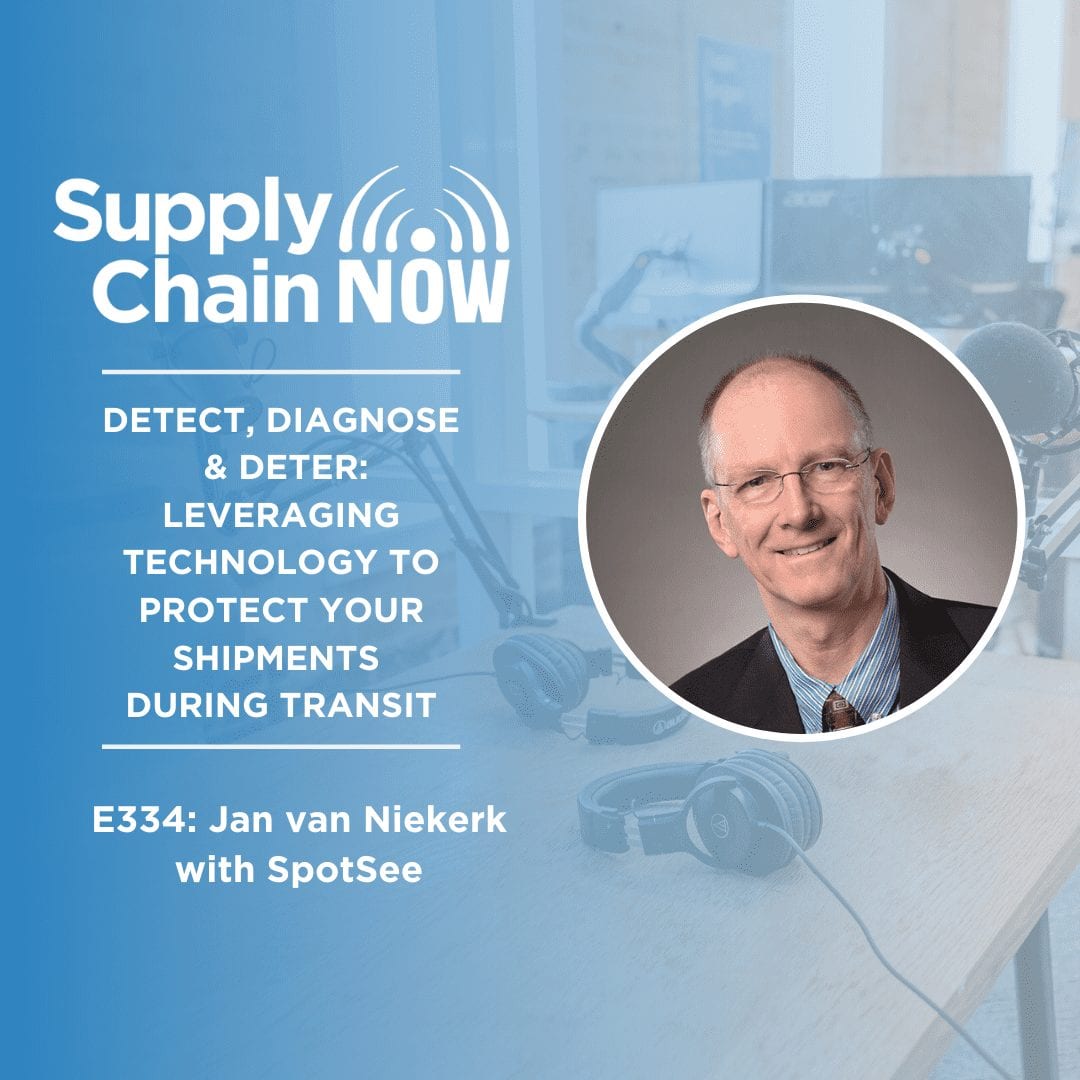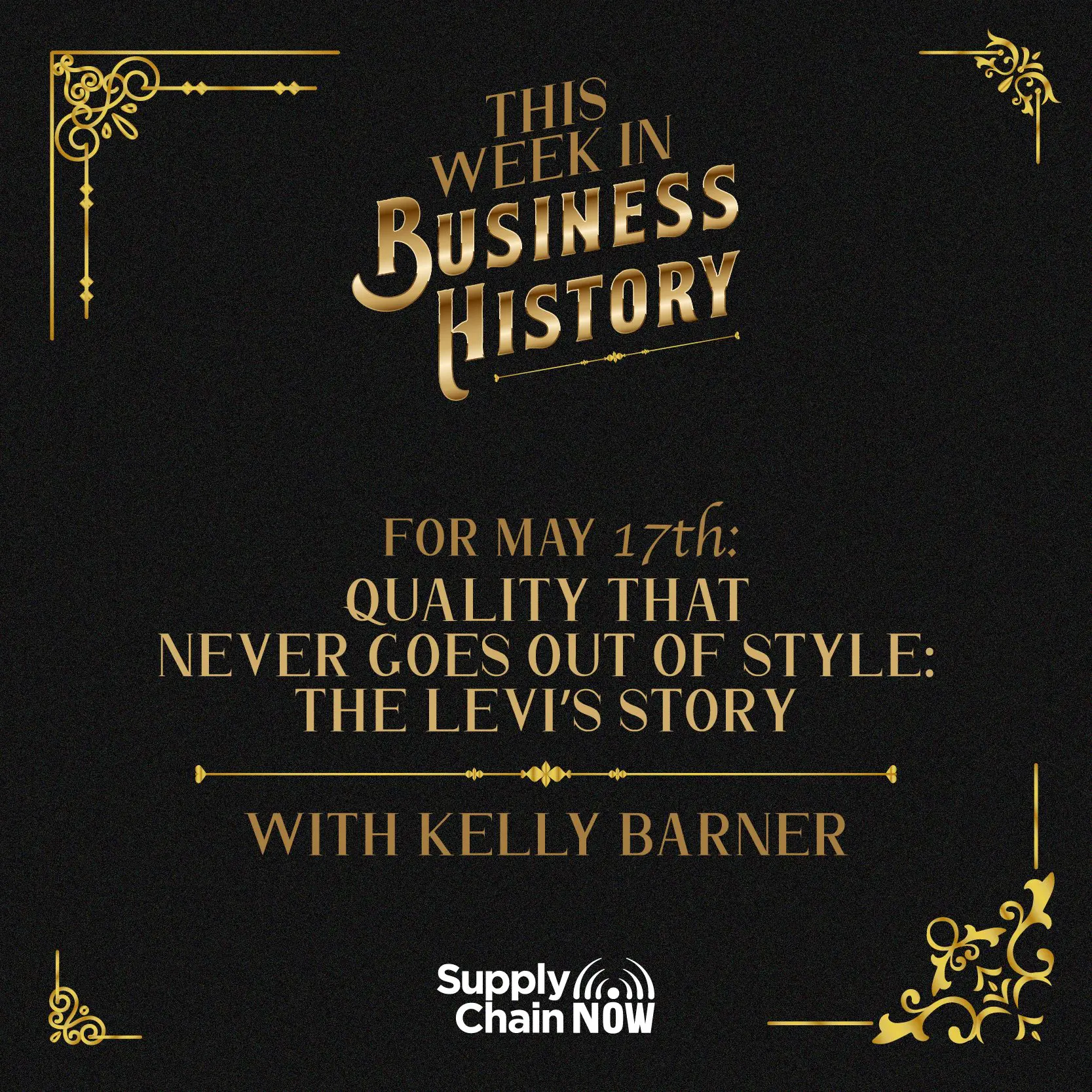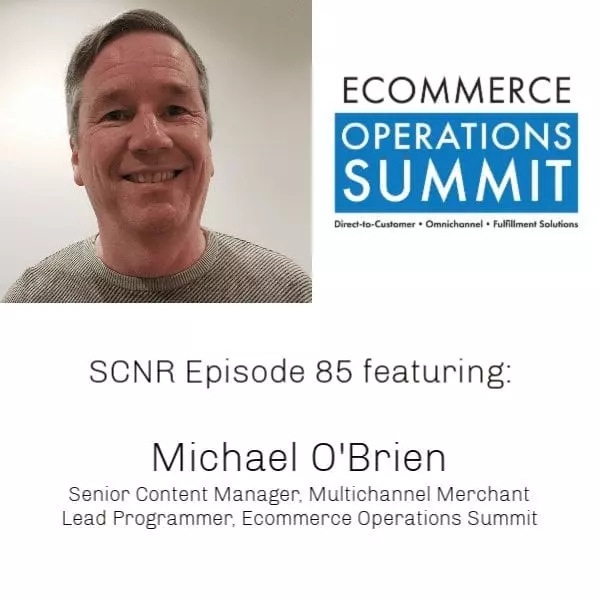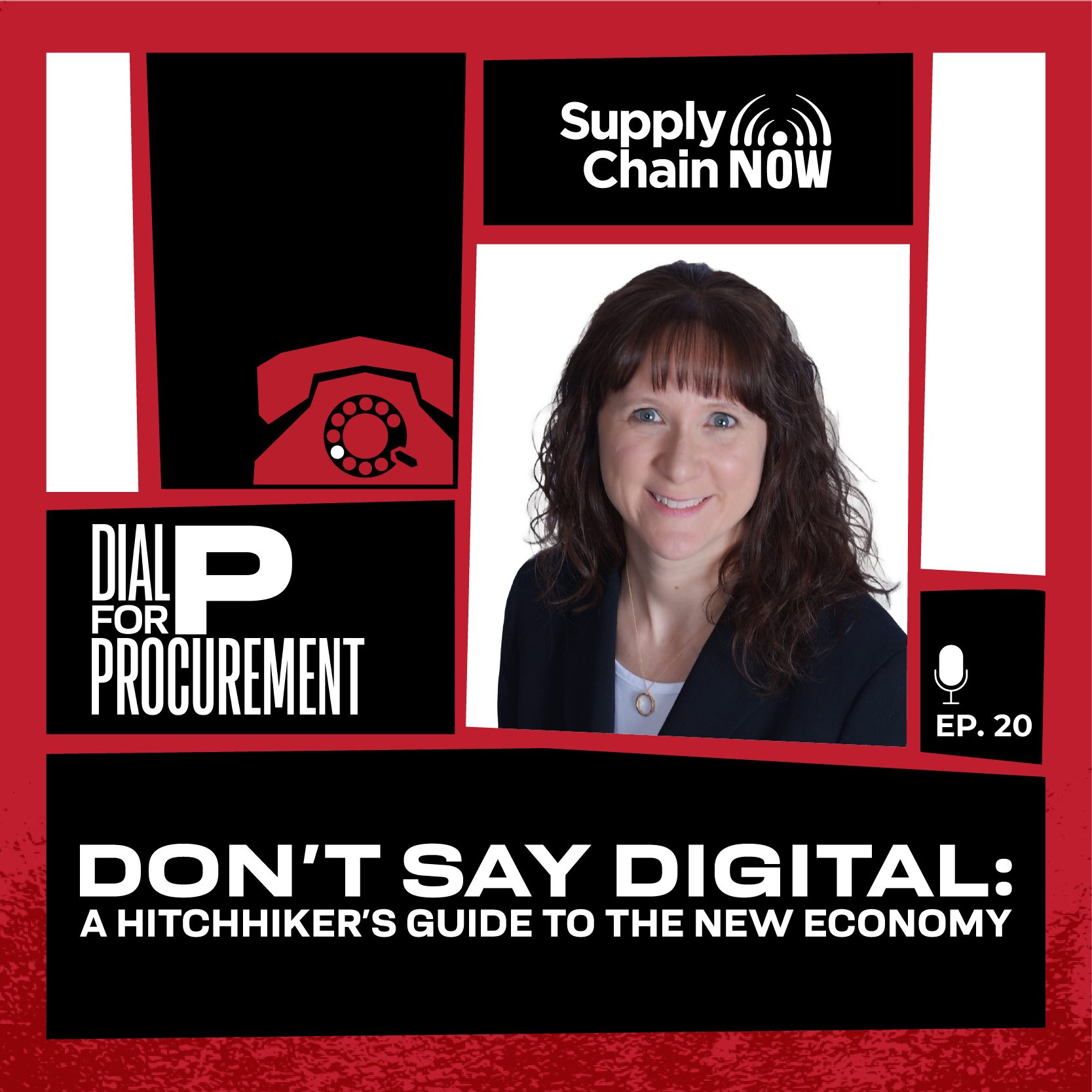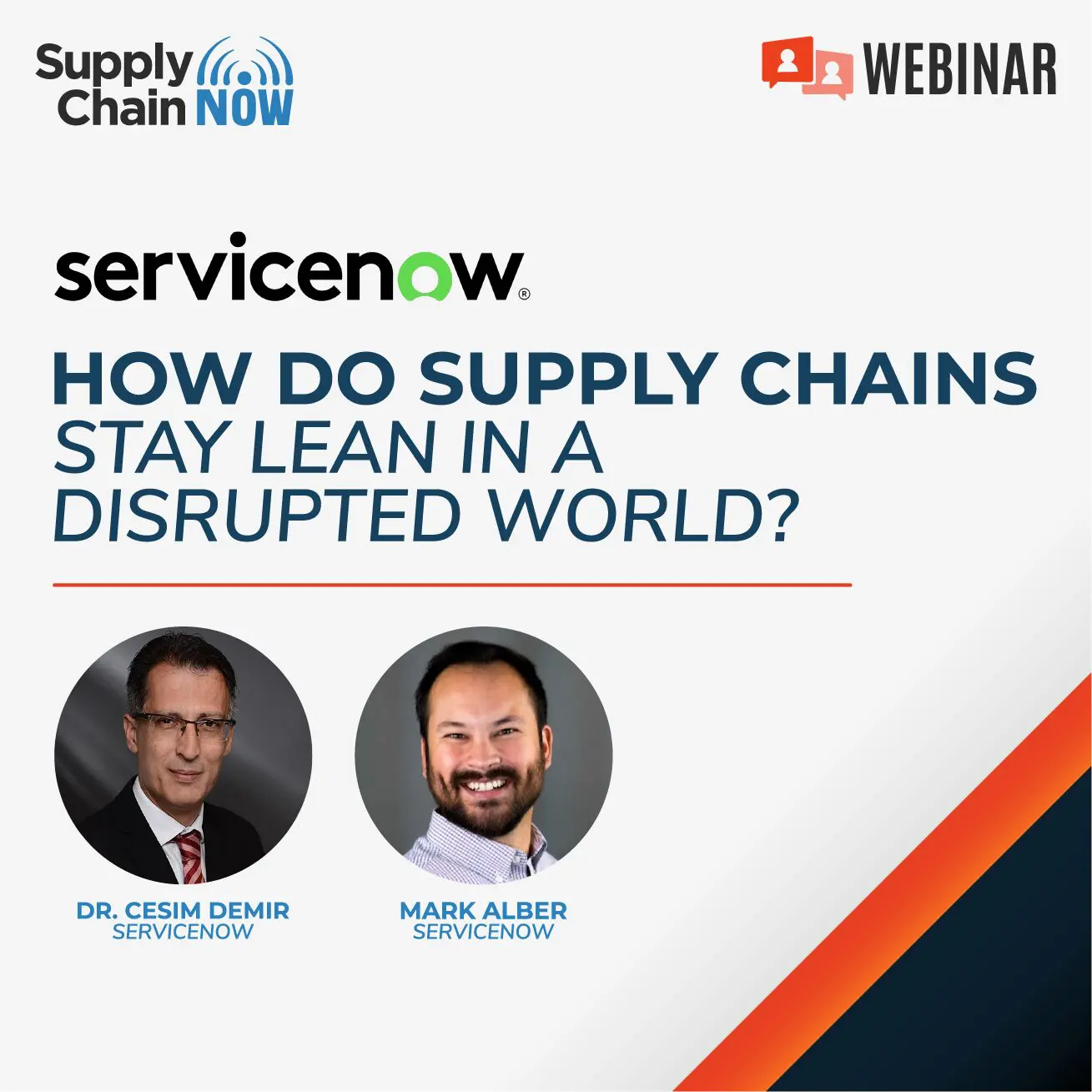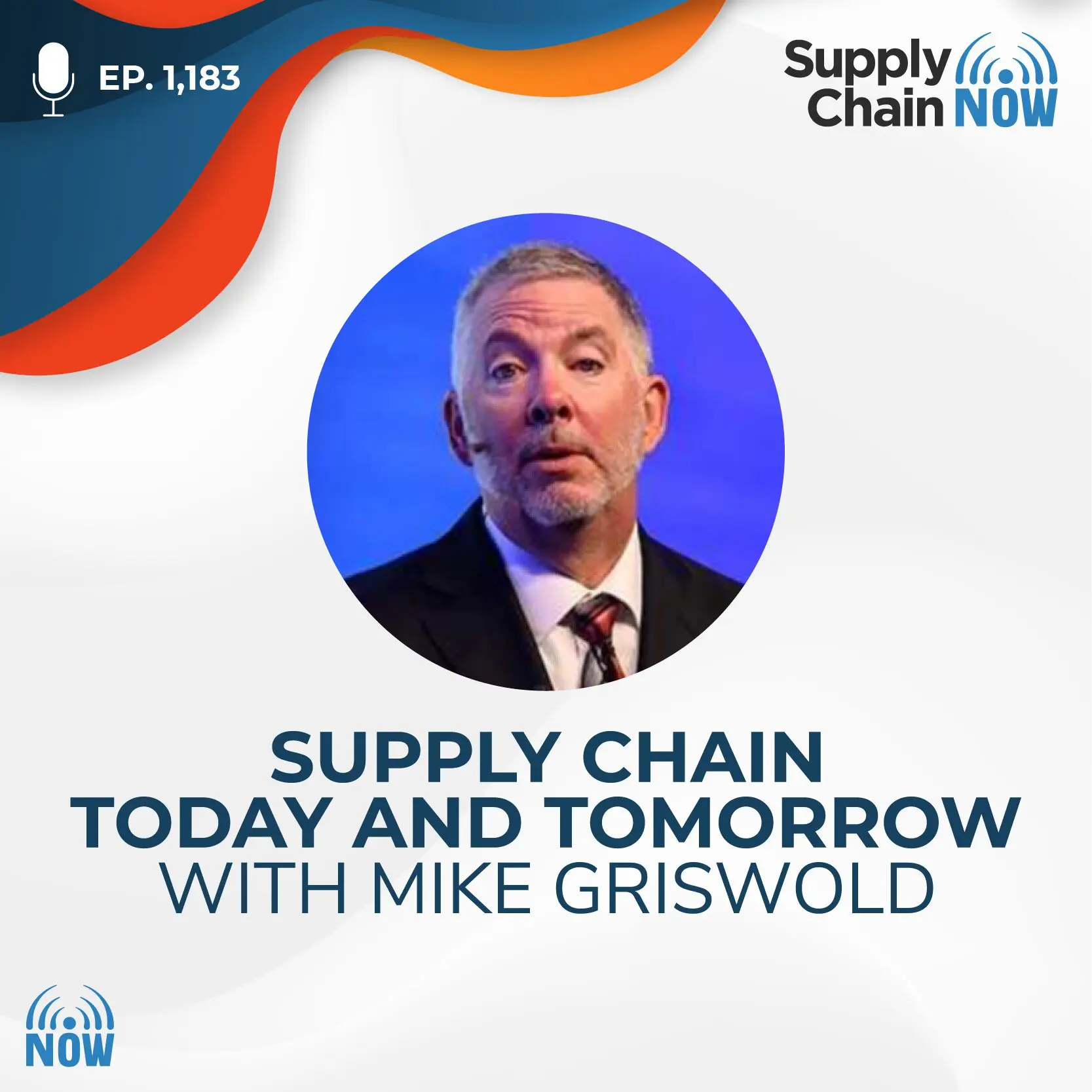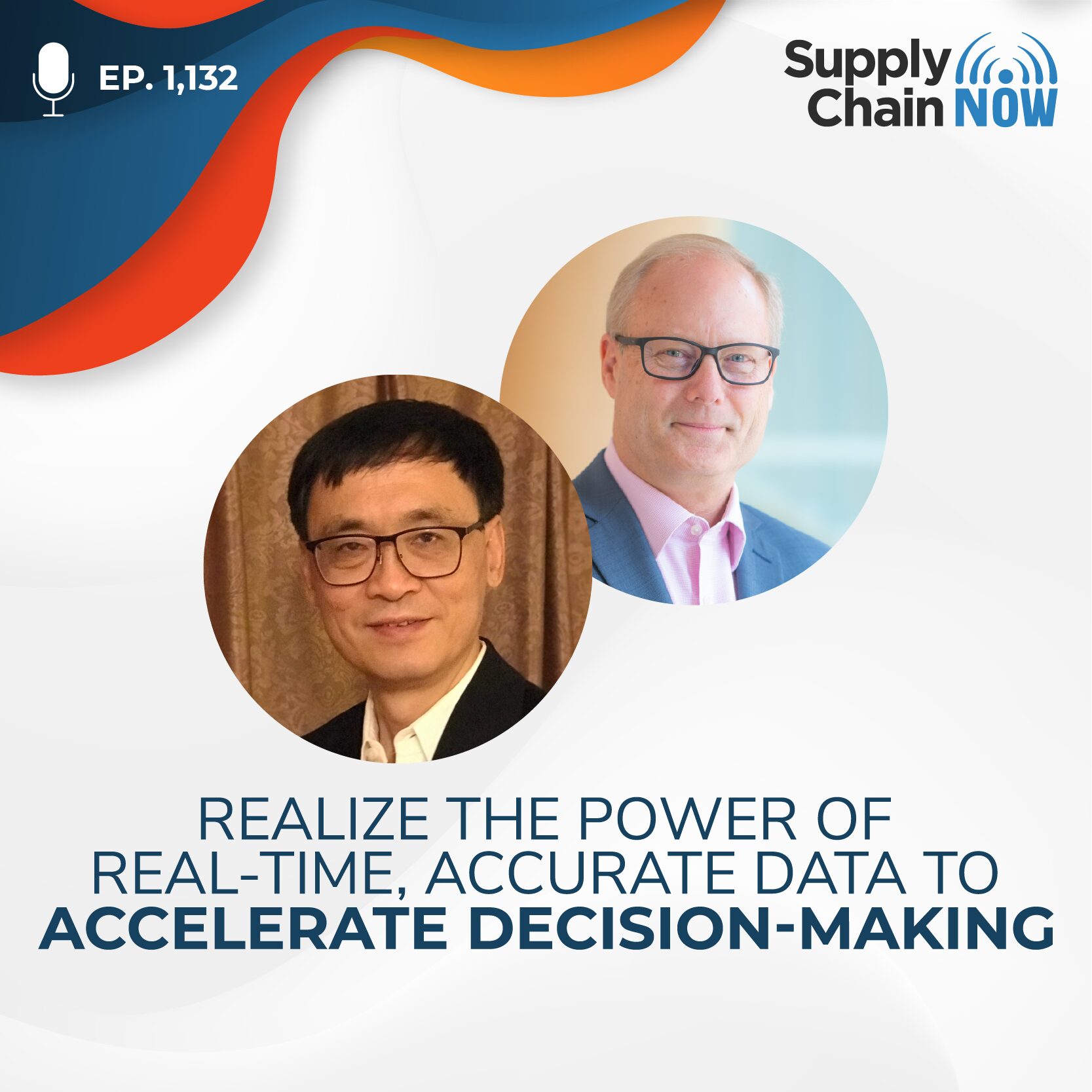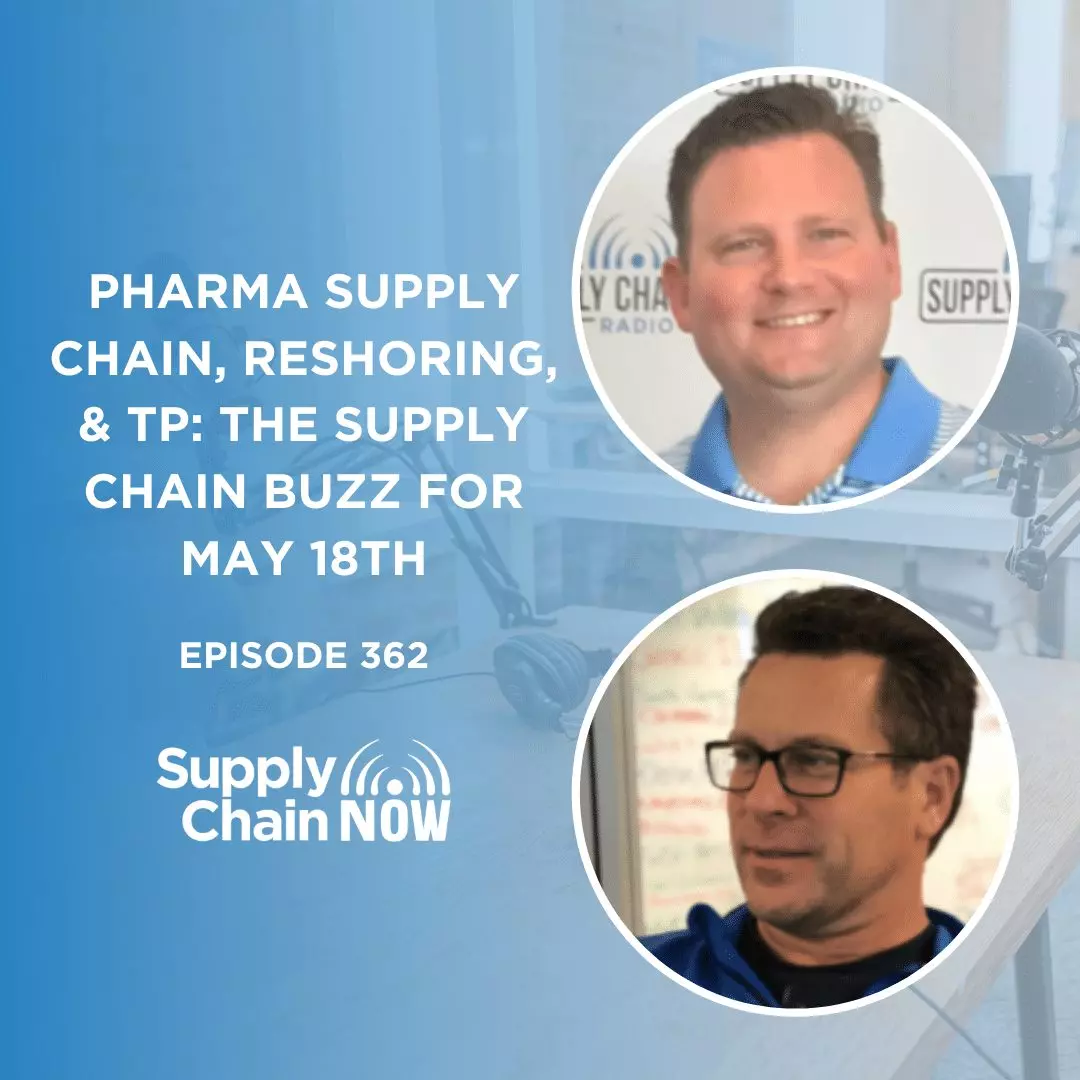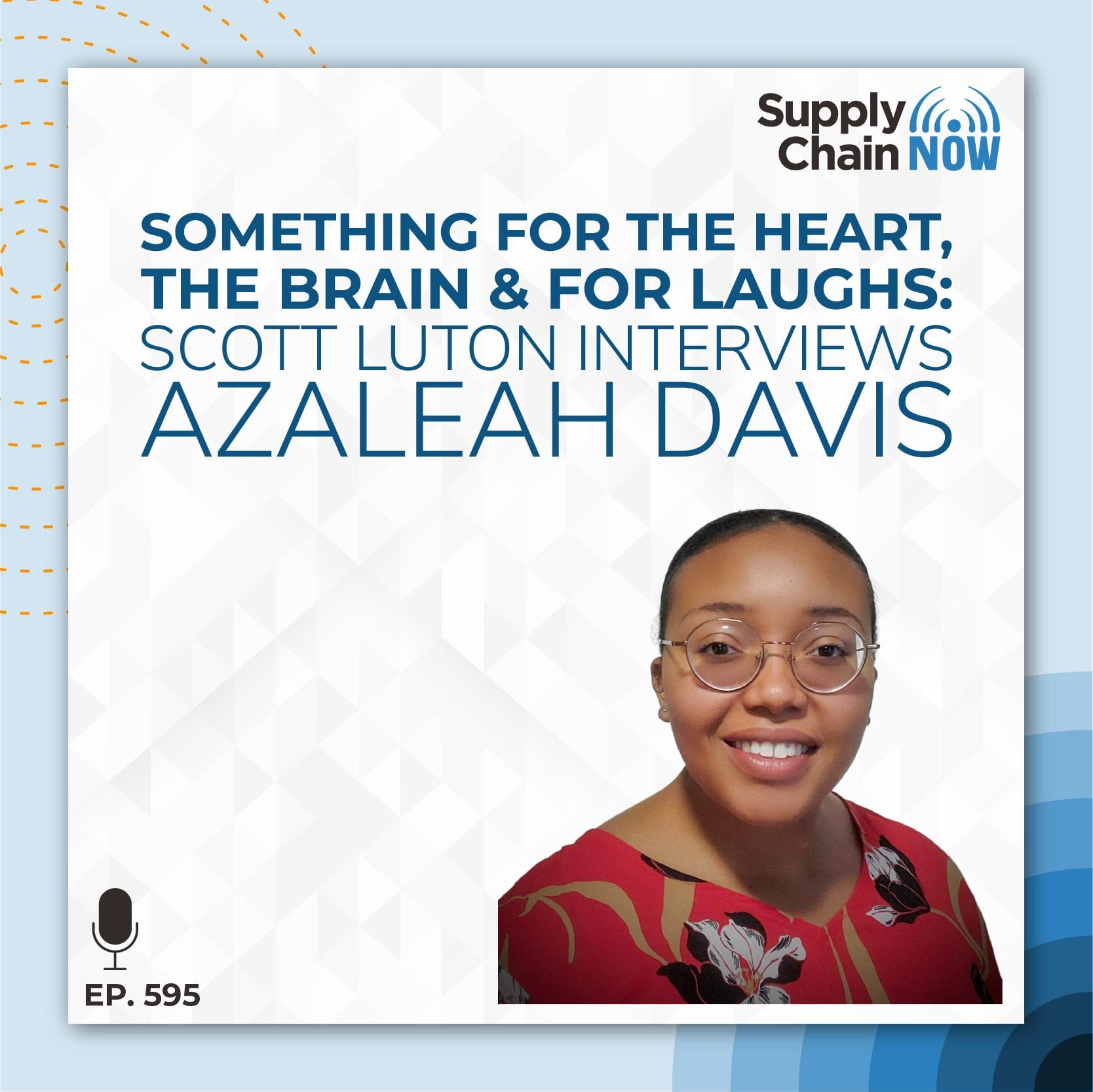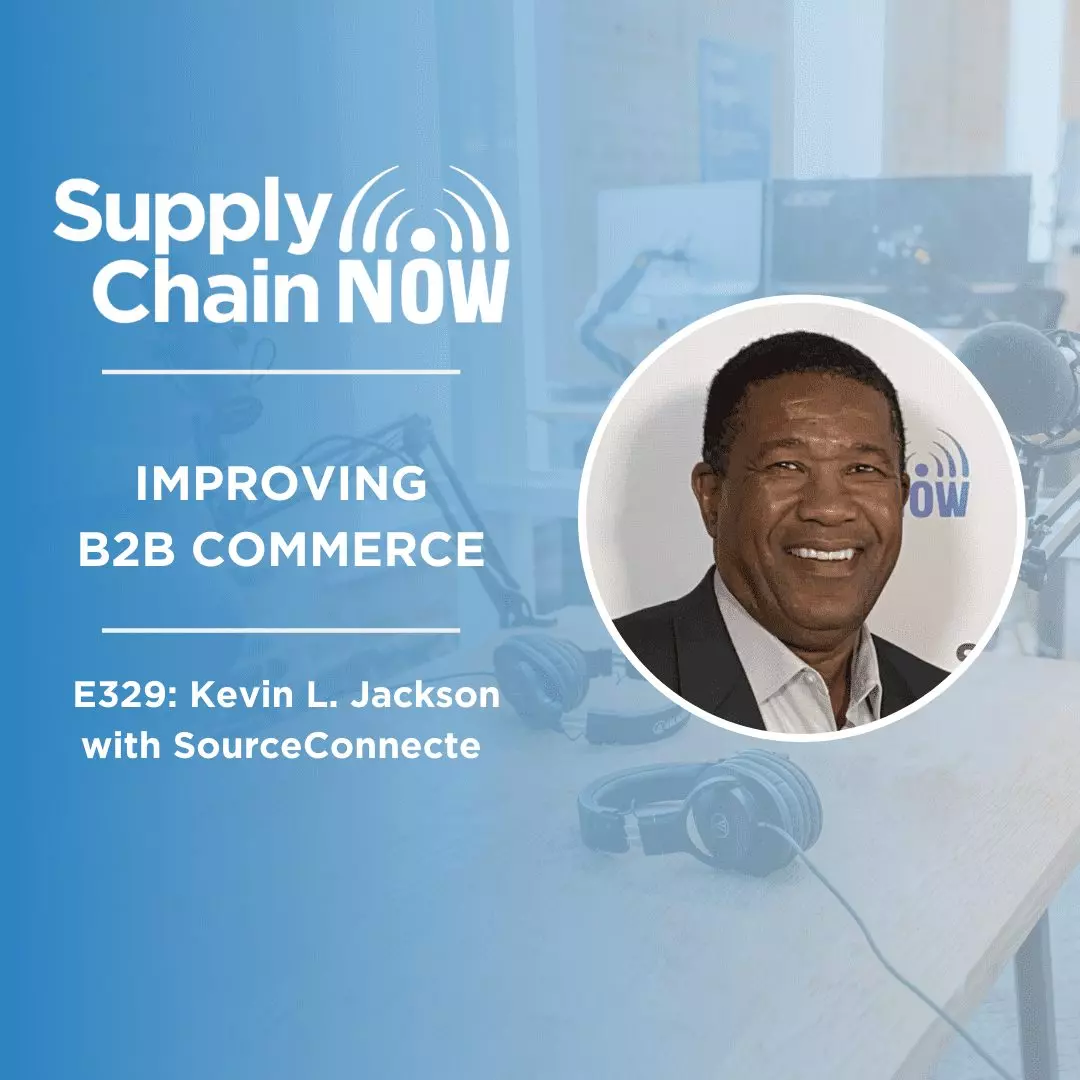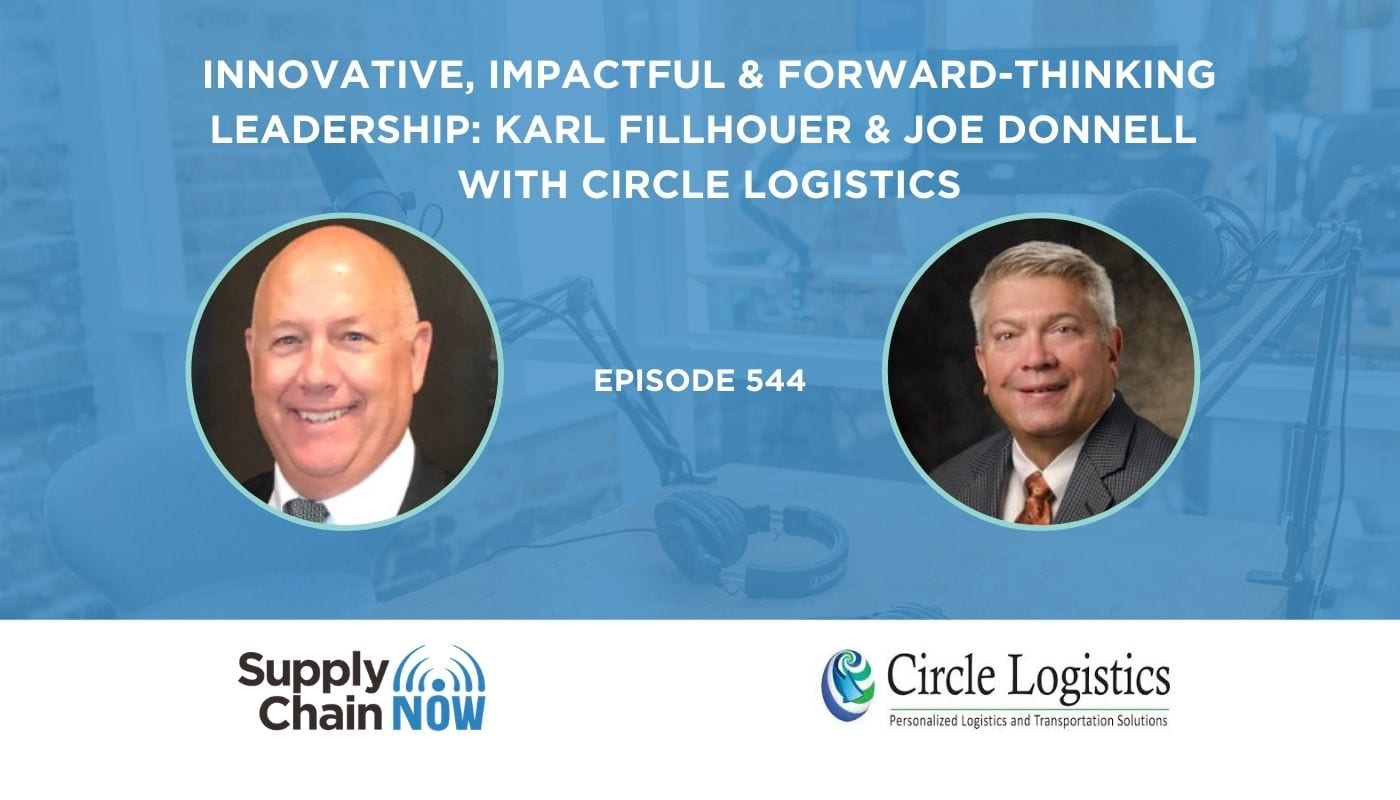
Episode Summary
“I think there’s going to be some people that come out on the other side of the pandemic way ahead of other people. I don’t know who those people are, and I don’t know what that’s going to look like, but I think the economic environment at the end of 2022 is going to be very different than it was in 2019.”
– Joe Donnell, Senior Director of Operations for Circle Logistics
One of the very strange things about 2020 was that while many businesses were struggling, especially small, localized businesses, many logistics and supply chain companies were experiencing tremendous growth because of changes in consumer patterns and the elevated needs of the healthcare industry.
As a high-volume 3PL brokerage company, Circle Logistics was a beneficiary of that opportunity to grow, but they certainly haven’t taken it for granted. In fact, they worked with small and regional breweries and distilleries to move bulk hand sanitizer from production to warehousing locations where it could be repackaged for shipment and sale to consumers. Each one of the 200+ members of the Circle Logistics team played a role in their ability to pivot and quickly serve the market.
In this conversation, Karl Fillhouer, Vice President of Sales and Operations at Circle Logistics, and Joe Donnell, their Senior Director of Operations, tell Supply Chain Now Host Scott Luton:
· The recruiting and talent challenges they faced in 2020, from the loss of the automotive sector volume to the scramble to hire enough people once business picked back up
· The potential they see for pent-up consumer demand to be released once the pandemic restrictions are lifted, and what that will mean operationally for supply chains
· The technology innovations Circle has been investing in over the last few years and what they see as the next frontier
Episode Transcript
Intro/Outro (00:05):
It’s time for supply chain. Now broadcasting live from the supply chain capital of the country. Atlanta, Georgia heard around the world. Supply chain. Now spotlights the best in all things. Supply chain, the people, the technologies, the best practices and the critical issues of the day. And now here are your hosts.
Scott Luton (00:30):
Hey, good morning, everybody. Scott Luton here with you on supply chain. Now, welcome to today’s show today. We’re talking with the innovative three PL that’s one of the fastest growing transportation companies in the country. So stay tuned for a great conversation. We’re gonna be working really hard to increase your supply chain leadership act Q uh, quick programming before we get started here today. If you liked this conversation, be sure you find us wherever you get your podcasts from and subscribe for free. So you don’t miss a single conversation, just like this one. All right. With no further ado and welcome in our featured guests here today. We have Carl Phil Howard joining us vice-president sales and operations with circle logistics, Carl. Good morning. Good morning, Scott. Great to have you here. I’ve enjoyed the pregame and joining you is Joe Donnelle senior director of operations.
Scott Luton (01:15):
Also with circle logistics, Joe, how you doing? Doing great. Doing great. Thanks for adding money. You bet. Well really enjoyed getting to know you both get to know your operations. I’ll tell y’all have been on the move and we look forward to sharing some of that with our audience here today. All right. So Carla, let’s start with you, uh, before we get down to business and talk about what circle logistics is doing. Let’s get to know you and Joe A. Little bit better. So Carl where’d you grow up and give us the goods on your upbringing a little bit. So I was born and raised in Wisconsin town called Appleton, lived there and went to college in Wisconsin. So, uh, through most of my, not all my childhood after that, moved to Minneapolis, worked in that marketplace for both 30 years. And today I find myself in Phoenix, Arizona.
Scott Luton (01:58):
Wow. Okay. So you grew up in Appleton Wisconsin. All right. Correct. And you’re still a big Packers fan. What was, what’s really unique about being beyond that enormous Packers community? What else is really unique growing up in Wisconsin? I don’t know if there’s that many things unique. Wisconsin was a great place to grow up for a kid, just like any other Midwestern state. There was a long time ago that I grew up times have changed quite a bit, but Wisconsin, from what I know is still the same old, good old Midwestern state with a lot of good opportunities for young people and in a great place to live. Yeah. A lot of good people too. And of course you’re out in Phoenix now. I’ve been to Phoenix once back before the world changed in last February and what a beautiful part of the country with wonderful people and incredible food.
Scott Luton (02:45):
So I’m very jealous. I love where I live, uh, Carl, but I’m very jealous of you living there in Phoenix. Well, this is the time of year to be here. Love it. I were talking pre-show uh, with your telescope, just over your right shoulder there, you had some great shots of the grand conjunction, I think is what they’re calling it of the planet’s getting together. So we’ll have to feature that in the show notes, Carl. All right. All right. So Joe, Joe, Don Ellis, let’s bring into the conversation. So same question. W where did you grow up? And, and you got to give us the goods on your upbringing.
Joe Donnell (03:16):
I born in Cincinnati, uh, spent a short time there a short time in St. Louis, a short time in little rock. And we moved to Fort Wayne, Indiana where I am now when I was in the third grade. So I’ve been here in the upper Midwest for a long time. So that’s kind of the route,
Scott Luton (03:31):
Right? So you moved to Fort Wayne when you were in third grade. I hear that right now. A lot of folks might be surprised about all of the inventions and innovation that’s come out of Fort Wayne. I want to say, I may have this wrong. So Joe correct me. I want to say that refrigeration started in Fort Wayne, Indiana.
Joe Donnell (03:48):
I wasn’t aware of refrigeration, but, but the guy that invented the television was from Fort Wayne. And of course, everyone knows where the, where the, uh, magnetic wire capital of the world. Everybody knows that.
Scott Luton (04:02):
Sorry, there’s an international data celebrates that I’m sure. So Joe, growing up in Fort Wayne, you know, what was in all of it, I mean, all the cities you mentioned sounds like a great, uh, childhood, but what’s, what’s special about that part of, uh, Indiana
Joe Donnell (04:16):
It’s Fort Wayne population probably is around 200 to 250,000 with the greater metropolitan area, great place to raise a family, learn some Midwestern values, have some work ethic we’re here in the middle of kind of Autopark capital of the United States. The most recently built general motors assembly plant is five miles South of where I’m sitting. So we’ve got auto parts and a lot, just a big Western work ethic kind of stuff up here. Great cheap fam cheap town to raise a family in rural
Scott Luton (04:47):
That’s important too. And you know, we, we were talking pre-show Carl is our resident Packers fan, and Joe is our resident Indianapolis Colts fan. Yep. Packers in the playoffs, the culture rebuilding there’ll be back. Uh, so we’ll say the sport for the follow-up conversation. So let’s talk, let’s talk about circle logistics or, or before we get there, let’s talk about what you did professionally prior to what you’re doing with circle logistics. So, Carla, start with you tell us, you know, a, a key role or two that helped shape that worldview of yours. And then I’m going to ask you about it, your Eureka moment.
Karl Fillhouer (05:20):
So I, I started in the industry back in 1983, which was shortly after the deregulation of the industry kicked off deregulation of air freight, LTL truckload. You know, pretty much transportation was changed completely through the eighties. And I was fortunate enough to work with an air freight forwarder that was one of two or three air freight forwarders at the time in 83. And over the course of the first five to 10 years of my career, I was able to work not just for an air freight forwarder, but we were an LTL consolidator as well as a distribution. So I was able to touch all the different parts of supply chain from there. I went on to have my own business, ran that for a few years, I ran into some, uh, financial problems, had a couple of big accounts go down on me, left that, uh, having my own business in joined, uh, the two gentlemen that had hired me right out of college, 10 years earlier, again with an air freight forwarder and a consolidator. And then after a couple of buyouts, I was recruited by a large truck line that ran dedicated fleet operations, as well as contract carriage. And I was brought on board there with a team of people to build a three PL so I’ve, I’ve touched every facet, uh, in one way or another. And I’ve been able to watch, uh, things changed drastically from the early to mid eighties until now
Scott Luton (06:45):
Love that you’re gonna have to write a book. It sounds like you eat supply chain for breakfast and seen it all. And I love your entrepreneurial experience. I bet that’s been really helpful owning your own company for a period there as you apply that perspective in working with different relationships.
Karl Fillhouer (07:00):
Yeah, it absolutely has. And, uh, I’ll touch on the aha moment. You asked about, you know, when I first joined the industry, it was a lot different, looked a lot different than today. And as we entered the nineties and really before the internet really took off the way it has, the aha moment was, uh, that most three PLS and or carriers are managing and expected to manage information as much as freight. And the information piece is probably more important to most of the larger customers so that they can do the right kind of analysis and figure out which way they need to, to turn as they move forward. So the aha moment really is that we not just manage freight in the moment of freight, but we’re managing a set of information for us.
Scott Luton (07:46):
Excellent point here in the information age. Imagine that information supply chain is just as critical and it’s really neat. We were talking pre-show about some of the things that circle logistics is doing from a technology standpoint, we’ll touch on here later in the conversation. All right. So Joe, same question to you prior to circle logistics, what are a couple of key roles you had? And that aha is important too.
Karl Fillhouer (08:06):
I came out of school in 1982 and immediately went to work for Arthur Anderson and company in Chicago, Illinois, which is one of the big eight back when there were eight paid large public accounting firms stayed there for three years. Didn’t like Chicago at all as from Fort Wayne, which is just a medium size, a smaller town. Chicago was a foreign country for me. So we hung out there for three years and my wife moved my soon to be wife moved up there with me, et cetera, et cetera. And then we were both from Fort Wayne. In fact, Fort Wayne is so small that her father was my pediatrician when I was a kid. And he, you know, the joke in the family is that he would have spent more time, you know, making sure those 12 stitches he put in the back of my ankle would have been a little bit nicer. You know, I know that 25 years later I’m going to marry his daughter.
Scott Luton (08:51):
Hey, bless be the ties that bind right.
Karl Fillhouer (08:53):
Small world out there, but a small world. So anyway, um, so we, we moved back to Fort Wayne. I’m back with Coopers and Lybrand. Another of the big day called accounting firms. Didn’t last long there. Cause I jumped out to work for one of their, uh, clients still kind of corporation. I was the manager of internal audit and the manager of corporate accounting there for about four years. And when they first hired me, I didn’t have my CPA. You know, I’d been working for these big public accounting firms, but I didn’t have my certificate yet. And so I made a mistake in the interview process and I promised the CEO of the company that I’m kidding. I pass the exam. So I spent the next three years studying for the exam. That was my Eureka moment, took me three years to get through because I flunked the thing four times before I finally passed it.
Karl Fillhouer (09:34):
But you know, back in the day, the CPA exam was to two and a half day test. I mean, two days of testing, there’s a huge body of knowledge to get, and I didn’t have it. Cause I went to a liberal arts school. I was not the accounting major, et cetera, et cetera, but I promised the guy do it. And finally I got through it and did it, but I gave up three years of my life. So the moment, so the learning for me is, is that, you know, if you tell somebody of authority, the trigger to do something, you get it done. Now, hopefully it doesn’t take as long as it took me to get it done. But when you fight the battle and finally, when you know that that’s, that’s something that you can call it an accomplishment. So that was very good for me.
Scott Luton (10:10):
I love that. And of course, global supply chain is built on commitments, right. And, and doing what you say you’re gonna do. So I love that. I do relate to your, your accounting trials and tribulations. That was my least favorite class in college. And, uh, I’m not gonna tell him myself, but I may have just taken out a couple of different times. So
Karl Fillhouer (10:28):
Yeah. And there’s no shame in flunking. Trust me, I’m living proof of that.
Scott Luton (10:34):
Well, I like kinda your, your two backgrounds and complimentary and, and, and, and Joe, one final thought on yours, you know, supply chain finance is front and center these days. So to have your, your background in that as a very valuable component as well. So that brings us to circle logistics and I’m sure plenty of our listeners are familiar with circle logistics, but for those three or four folks that may have ha have not heard of y’all, uh, tell us what does the company do?
Karl Fillhouer (11:00):
So circle is just, X is a three. PL is asset-based as well as being just a straight street deal. From a brokerage standpoint, we provide truckload LTL in air freight services to our customer base, really to put, in a nutshell, we provide capacity. That’s not readily available, easily available to large shippers through our relationships with many small mom and pop carriers. And we manage that the conduit that holds everything together. So we, we give greater visibility to capacity in manage that capacity is if we were one large carrier and we do it through a combination of using our own assets, as well as closely held partner carriers and then larger carriers as well,
Scott Luton (11:47):
Outstanding Joe, anything to add to that very succinct in a nutshell definition, I like that car jealous
Karl Fillhouer (11:54):
We’re, we’re going to get to the current situation and the growth that we’ve seen racially in the pandemic, which is a very strange thing to talk about because you have this awful challenge that society has right now. And we find ourselves in a situation of high amounts of growth, especially that we’ve never seen in the history of the company. And so there’s a real weird dichotomy going on there right now that we’re dealing with. And I know we’ll get to that in a moment, but as far as what we do, we’re doing a lot more efficient than we were in previous years, as far as that goes.
Scott Luton (12:27):
Yep. Well, you know, it’s been said, I think very well back earlier this year we had Kevin Bell, who’s an attorney with, uh, Arnall golden Gregory. And he mentioned a phrase which, which we really referenced numerous times during a very strange, uniquely challenging year, like 2020, where he said, Hey, you can find opportunity without being opportunistic. And you know, the bit the industry has been really busy this year based on a number of different factors. And I like how you put it there at Joe, because there is a weird dichotomy, right? But at the same time, the professional supply chain professionals also serving a noble mission. And while sure it’s driving business, there’s also plenty of plenty of just sheer Goodwill work being done that doesn’t lead to a transaction. So this is a great year for the profession. And I think it, one of my favorite parts is that really the consumers and the public have really begun to recognize not just the very deserving healthcare, frontline workers, but all the folks that make up global supply chain, why that’s so important. So, uh, Jay, that’s a great segue because let’s talk more about what circle of districts have been doing to fight COVID-19 and carwash. I’m going to bring you back in here because we were talking about a lot of your efforts related to hand sanitizers pre-show. So tell us more about that.
Karl Fillhouer (13:40):
Yeah. We were fortunate enough to have relationships that already existed with a lot of small regional distilleries and breweries and has most of the public knows that sector of business made a transition early on with COVID in, in started to produce hand sanitizer instead of beer or other alcohols. And we were able to very quickly establish a, what we would consider a new department or even a division within the company to move ball can sanitizer. And we put together a couple of projects in which we not only started to move a hand sanitizer via tankers, but we w we would move it from the actual production to a repackaging facility where it would be, that’d be repackaged into consumer packaged goods. And then also we provided short term warehousing and distribution, where we picked and packed orders, and actually got the hand sanitizer shipped out to the end users, whether they were companies, uh, retailers that had hand sanitizer doors or restaurants or just individuals. So we got deeply involved in that, in, in we found that, uh, through billing,
Joe Donnell (14:52):
The bulk transportation via taker, uh, division, we were able to help out quite a bit, and it spurred a whole new piece of business for us.
Scott Luton (15:00):
Love that. And I think that’s part of the good news part of the silver lining here. Just these, these, all these, uh, I don’t wanna use the word pivot has been overused so much, but these businesses have adjusted and found new, innovative ways of not only fighting COVID-19, but driving business, which stay in business. You gotta find the, those, uh, those angles. So your efforts. So, uh, as we learned you both in September, November, between Stevie awards, uh, bronze Stevie from the international business awards for most valuable COVID-19 response, that’s pretty impressive. But also from the 2020 customer sales and service awards, you were recognized as company response to the year creative ways companies are giving back during COVID-19. So that that’s gotta be pretty rewarding to be recognized by third parties for, for
Joe Donnell (15:47):
Your work. Absolutely. We’re very proud of it. And really the credit goes to the entire team. We, we’ve got a great team of people that, uh, is now North of 200 team members, and they’re spread out throughout the entire country in every one of them is a contributor to what we do. Yeah.
Scott Luton (16:05):
Well said there, Carl, so Joe, I want to pick your brain a bit as we talk about business, the, the landscape, you know, here in this strange year, you were talking, pre-show a bit about that constant demand, and it’s just like a tsunami that keeps on coming. And the, you know, you’re talking about how logistics being that keeper, the last touch. Tell us more about, about all of that.
Joe Donnell (16:27):
Yeah. W you know, pre COVID, we were kind of rambling along at the same rate through the previous year. And life was pretty decent, pretty good. And we were hiring, you know, two or three people every other month, you know, to keep up with what’s going on. And then COVID hit, and we do a lot of automotive parts and support for the automotive industry. So, and they shut down, you know, for like eight weeks, they shut the whole thing down. So everybody, so all of that stopped. Right? And we shouldn’t people home. And I, I’m an old guy and I’ve never worked from home before. And I didn’t think it was going to work, but here I am still working from home. I’ve been in the office three times since last March, since we moved out and that’s it. And I’m working from home now, and I didn’t think it would work, but that’s something that actually saved us too, because we found out we could work effectively, remotely and still run a high behind three BL brokerage company dispersed out.
Joe Donnell (17:18):
Now we had to do a few things to get that set up. We had to have morning meetings. We had to have morning video meetings, such as what we have here every morning. We have I’m on three different calls, other people on a bunch of calls to make sure people are up moving awake and getting stuff done. Right? And sometimes you see people, you know, in various forms of pajamas that you don’t want to see, but, but at least they’re working, getting stuff done because there’s a lot of work to get to. So anyway, go back to March when the automotive thing shut down completely, I thought, I thought we were in trouble. I thought I might lose my job because volume dropped so dramatically. So we got through that somehow and everybody held their breath and the government provided some support, which was great.
Joe Donnell (17:59):
Everybody needed that support at the time. And that kind of held us through and you kept it together. So then it got to July and things started to pick up a little bit and we’re like the cow, no vines coming up. And then in August, they moved me from all the stuff I was doing back to recruiting people. They wanted to be involved somebody with some experience to be involved in the recruiting process. So by October 15th or so, we had went from one recruiter to four recruiters plus me doing it. And we tried to hire all these people. So we’ve hired 50 to 60 people just in the Fort Wayne office, just from August 1st. And we were a hundred percent office to keep up with the demand that started coming. This started to show up. Cause when, when the automotive guys came back, they were behind, there was pent up demand for car purchases, right.
Joe Donnell (18:44):
I don’t know why, but there was, there’s kind of demand for everything. And my son who works at an international paper, uh, plant. So they told us in July to run the plant full out, as hard as you can go because of the demand by, by Amazon for boxes is going to be completely out of control because all these people are going to buy this stuff and it’s going to get delivered to their home instead of going to a retail store because of COVID and they were right. I mean, so they’ve been running, so we do, paper’s gone crazy automotive cons, crazy housing constructions going crazy. So you’ve got that dichotomy of the economy that’s doing great. And then you’ve got the leisure part of the economy that’s not doing well at all. Right. So lucky for us, we’re involved in servicing the industry. That’s doing great. So we have seen we’ve set sales records in November, uh, daily sales record. Uh, the Monday, I think the Monday of Thanksgiving was the highest single day of sales that we’ve had in the history of the company. We just had the entire carrier sales team work Saturday and Sunday, and still on Monday morning yesterday, they woke up at nine 79 loads on the board, which is one of the largest numbers of single day. Elizabeth had on the board
Karl Fillhouer (19:56):
At the previous weekend
Joe Donnell (20:00):
And they worked till six 45 last night just to cover their stuff. So, so we’re seeing a huge amount of economic activity. And the good news is that because we’ve hired everybody in Fort Wayne, Indiana within 30 miles of the office that we could possibly hire. I mean, we’ve, we’ve, we’ve grabbed everybody who could grab. We found that we’re trying to start, we’ve started an office in Nashville. Tennessee was carrier sales guys. We’re trying to start one in Atlanta, w we’re we’re hiring people remotely because we figured out that the remote thing would work. Cause we never thought it work. Right. And now we’ve got a guy in Hickory, North Carolina working out of his house. We’ve got people in, in Denver working out of their houses, you know, all working for this little company, sort of medium sized company in Fort Wayne, Indiana.
Karl Fillhouer (20:44):
So you shared a lot of there lot there and a lot of good news there too, because
Scott Luton (20:48):
What I admire being a former air force guy, you know, seeing the military, just find a way right. Improvise and overcome whatever. I think army mentioned that a while back, just find a what way to make it happen and what you, what are one of the things, a couple things I heard there is just that’s what supply chain does. And certainly what circle logistics has done. You know, remote work has thrown a, throw, a, throwing a huge curve ball. So many businesses and sectors and industries, but you’ve found a way to add to the payroll, despite those challenges, hire people, get stuff done, GSD. And that that’s in my view, at least a big part of the silver lining of what 2020 has been about. And one last thought is all those hardworking folks to come in, give up their Christmas weekend because work and demand and serving others and yes, business. But man, that takes serious commitment, dedication. So I appreciate you sharing that. Yeah. Let’s talk about FEMA because I think all, so many of us here in the pandemic, of course, we’re so fixated in supply chain or out on COVID-19 right. It dominates news coverage and any tender. I think the human illness tends to forget about other challenges that takes place across the globe in any year pandemic or not. So Carl talking about some of the work that y’all been doing with FEMA, tell us more about that.
Karl Fillhouer (22:04):
Yeah. Well it goes without saying that the pandemic obviously is at the forefront of everybody’s mind that what most people forget is we also set records this year when it comes to natural disasters like hurricanes. And, uh, again, we’ve, we’ve been fortunate enough to partner with FEMA over the past years. And we were able to support the efforts to support the communities that got hit by natural disasters, both with moving water and food supplies into those regions, as well as generators and other supplies needed for rebuilding. And we’ve been doing that for a number of years now, but this year certainly saw a spike in, in need, uh, when it comes to natural disasters.
Scott Luton (22:47):
Yeah. Great point. And it was such a, a tough year. I was reading an article in the wall street journal, uh, back before hurricane season, not banking. And they were talking with, with, you know, 30 of the Southeastern us, you know, all the States that get hit with hurricanes typically. And they were, they were kind of comparing and contrasting all the different approaches and planning and, and some States couldn’t plan because they were trying to bake in the pandemic response while they’re trying to, you know, stage or think about shelter in place. It was such a uniquely challenging year. So I can only imagine some, some of the challenges you all had as you work to address that annual need of serving those hit by hurricanes and other natural disasters. All right. So Joe, I want to bring you back in before we switch gears and we’ll talk technology here in a minute. I loved how you were talking about some of what’s coming right, as we thankfully finally get out of the year of 2020, just right around the corner. By the time this publishes will be in 2021, what do you is coming well?
Joe Donnell (23:46):
You know, if you take what’s happening, what we are seeing happen today, and you watch that demand curve go up and you see it blow right through the holiday weeks, which is what we’re right in the middle of right now, usually January there’s a lull of logistics is all the retail guys are fulled up in there have been filled up in previous months and nobody’s going out and buying anything. But we’re seeing a blow right through the holiday weekend right now. But, but the other thing that I don’t think people have quite figured out yet is when the lease vaccinations start coming and people start getting their shots and then they’re free to go out and consume. You’ve got nine months of one of the richest countries in the world with pinup demand. Okay. When that pit up demand gets released, all that, stuff’s going to go on a truck, right?
Joe Donnell (24:30):
My clothing’s on a truck, everything that was was built, this house is on a truck. You know, everything goes on a truck, right? And so we’re net pin up demand gets released and we can, we get these people with their vaccinations and we establish herd immunity. Whenever that is 2021 is going to ramp up. And 22, 2022 is going to be a home run. Logistics is going to never have it so good in my opinion, plus you’ve got government stimulus coming in, right? Whether it’s 600 bucks or 2000 bucks, guess what people are going to have cash in their wallet and they’re going to spend it, what they spend it on. I can’t, I don’t know, but as soon as they buy that pair of pants or that tank of gas or whatever, they ended up consuming, it’s going to go on a truck, right? Everything goes on the truck.
Scott Luton (25:13):
Well, and you’re making a great point that our consumers, these days, all of us, us sitting here and all the others consumers out there, I’ve never been savvier and smarter and more aware, and certainly never had as much data at their fingertips. One other aspect of the silver lining is just the drivers. And as you put it, Joe, several times, all that goes on a truck for us to enjoy our convenient life here in the U S hopefully what we’ve seen at least is that appreciation needle, starting to move a bit and, and, uh, who knows, maybe folks will be little bit easier on the interstates and how they drive around trucks, but, but if nothing else recognize them for what they do and how they keep us moving and protect our psyche during these challenging times. Yeah.
Joe Donnell (25:56):
I think that’s a great point. I think, I think you do have can euros in this pandemic. You’ve got, you know, my wife is a critical care nurse. She works on the COVID Florida have hospital. I’ve been married to her for 34 years. I didn’t know she was a hero until February. And she’s like, she’s a hero. Okay. But truck drivers are the same thing. Right? They’re, they’re the unsung heroes of what’s going on right now. Cause, cause who kept delivering some things through the pandemic, those guys did, right. It’s not me in a cubicle at a three PL somewhere. It’s the guys who actually delivered the goods and you’re right. They do not get enough credit. There’s no way. And who’s the hardest working guy on the planet. The guy who’s maxing out his log book every day.
Scott Luton (26:39):
Good point. Great point. All right. So now I want to talk about, there’s so much more, I know we can’t get to everything in this single episode, but I really enjoy all the different aspects of, of the co the response to fight COVID-19 in, in all the different sectors that circle’s involved in while managing and running a growing business. Uh, it seems like a very, uh, good year, but a challenging year or uniquely challenging year. For sure. Let’s talk about technology partnerships. So Carl enjoyed, I appreciate your sentiment on the front end about, you know, that information supply chain. And that’s certainly a big responsibility here in the information age. Tell us more about some of the really neat things that circle logistics is doing as it relates to technology partnerships and innovation.
Karl Fillhouer (27:21):
So, w we’ve, uh, over the last handful of years in, in really a lot of things this past year, uh, we’ve done a pretty good job of, of partnering with the other technology providers. So obviously we’ve got a TMS in a system that we use internally to help manage our customers freight movement in any information needed to do so. Uh, but we we’ve done made some steps this year, automate everything. Uh, we’ve automated the carrier onboarding process through a product called my carrier packets, which has allowed us to eliminate the better part of a department in really managed carrier vetting and carrier onboarding was a much smaller team. Uh, we use a variety of tools for tracking and tracing, both ELD tracking and tracing, as well as, uh, using the macro points in the forkites of the world to, to track cell phone flow in, in, in movement, in different systems.
Karl Fillhouer (28:20):
We also then use a variety of different types of posting boards. Most, most small to medium sized, three PLS are involved with dat and with truckstop.com uh, select us as another board. We use central dispatch. Each one of these boards really seems to have a specialty that we rely on based on the type of business we’re managing. And we’ve been able to pull a lot of that technology together in Lincoln, so that most transactions in most dispatchers can flow almost 80% automated through our systems, which gives us more time to really manage the exceptions, which is what pulls us apart from everybody else.
Scott Luton (29:00):
Right. And that’s what keeps supply chain very non boring is all the exceptions that you gotta manage, Joey, anything, what else would you add in terms of the, the benefits that, uh, those technology platforms that Carl walked us through? What does that at the end of the day, what do you believe that means for the, for the customer?
Karl Fillhouer (29:18):
Yeah. Anything that can, can make it more efficient, you know, a booking, a load as a transaction. Okay. And it starts with, with an order that a guy has to get something moved from point a to point B. And then that order goes to some sort of transportation company such as ours. And we get the job done, anything that can make that more efficient and collapsed amount of time that it takes to get that done is a win for everybody. So you will see technologies that will speed that process up that will make it more efficient. You know, that’ll just, you know, with, with what’s going on in the technology field, that, that thing’s going, gonna be improvements that are just going to keep coming to the industry. Yeah.
Scott Luton (29:57):
I agreed. And, and, you know, give one less thing for your customers probably to worry about. And I mean that as someone that has ordered freight before, you know, things happen, that’s why supply chain exists, right. Things happen. But you know, when you’ve got more visibility at your fingertips and you can manage those times when things happen more effectively and, and while streamlining the whole shebang, I mean, it probably, I imagine you all, sir, you’ve seen your service levels go up as a result of some of these innovative improvements.
Karl Fillhouer (30:26):
Absolutely. Yeah. And we measure, you know, there’s a number of KPIs, obviously that are industry standards. We measure everything from on-time pickup to on-time delivery, what’s happening in the middle, uh, exceptions that might be missing freight with some types of shipments. Uh, all of that gets gets recorded and measure it. And again, you go back to the exceptions and anybody in the business would, would tell you that if 80 to 90% of the business flows smoothly and automatically you can keep your eye on it. And there’s a lot of time put into that last 10% to make sure things are going smoothly.
Scott Luton (31:05):
Carl and Joe, I’ve got a, not a curve ball question, but I got a question I wanna pose to you both given, given a year like 20, 20, we walked through some of those dynamics that are front and center for so many people. And then when we talk about technology and the implementation of new technology, new relationships, new platforms, what have you, if you’re speaking to other business owners out there that are, you know, trying to figure out, you know, their own technologies that they’re looking to implement supply chain and otherwise, is there anything related to change management and management in general, but change management, technology implementation, project management, is there one rule of thumb that a 2020 taught you, uh, you both, and your management teams, perhaps as you’re looking to drive improvements in such a challenging,
Karl Fillhouer (31:48):
I guess the one thing I would say is, is, uh, you can go to the old adage trust yet verify, and technology’s great, and it doesn’t work most of the time. And if you can automate systems in make for a much smoother, uh, sleeker operations, that’s great. You still need to be dotted your I’s and cross your T’s when it comes to making sure the systems are working properly and are all in sync with one another.
Scott Luton (32:14):
Yeah. And it also seems like, you know, we see a lot of fear of missing out when it comes to technology. A lot, a lot of companies out there want the latest and greatest, even if they don’t, aren’t sure how that works or, or maybe how it’s going to impact and benefit the business. It seems like y’all have been very judicious and intentional about, you know, where to, uh, where to put the, you know, those resources and that bandwidth with, with some of these projects here, Joey thing, would you, would you add anything here?
Karl Fillhouer (32:40):
Yeah. I think an extension of that is, is that there’s going to be a generation of haves and have nots. And the haves are going to be able to incorporate the technology because they’re smart enough to do it and make it work commercially. And the have-nots are going to hit a stumbling block and they won’t be able to either afford it or implemented it effectively. And that’s gonna, that’s gonna be another thing that’s going to separate the guys that are still around in five and 10 years from now versus the guys today. I I’m scared to death about small business right now, and whether they survive, whether restaurants survive the pandemic or not, you know, and it’s, it’s, there should be a lot of commercial shake out and we haven’t seen the end of it yet.
Scott Luton (33:24):
That’s a great call out. Small business is in trouble in a number of different ways. And, uh, you know, hopefully I’m not sure about y’all spinning habits here through the holidays, but no, we, we utilize a lot of small businesses in our neck of the woods, more and more, and use our spending power to help provide some support. But we’ll, we’ll see hopefully 20, 21, you know, bring some relief across sectors, uh, regardless of the size of the business. So along these lines, I want, I want it to kind of take the conversation broader here. As we start to wind things down, you know, there’s no shortage of trends and developments and challenges, but also good news across global supply chain. If you look for Karl what’s, what’s one thing beyond what we’ve talked about here today. Uh, what’s one of the things that you may be tracking more than others across global supply chain right now. Yes.
Karl Fillhouer (34:09):
So it was most of us in this industry. We keep our eye on the shift from global sourcing to more near shoring. So what kind of manufacturing is going to move, we’ll say from China or the Pacific rim back into Mexico or some other country that’s got affordable labor that’s heavily labor front-facing. Um, so w we wash all of that, you know, in COVID obviously has brought on, uh, some challenges. We’ve seen some problems that some of the ports with capacity today, we’re dealing with problems with, uh, available containers nationwide for exports. So we, we watched that cause that’s going to affect how our domestic transportation piece moves. We provide service in and out of Canada as well as in and out of Mexico. So if you look at our part of the world as North America, we’re still heavily influenced based on what’s going on in other parts of the world. So we try to keep our eye on that in, in basically guessed and or forecast what’s going to happen next in how our capacity constraints come to change as more and more small manufacturing pops up again within the U S transportation is going to have to change in order to support that from a lane standpoint and from a capacity.
Scott Luton (35:25):
Yeah. Great point there. We were talking just the other day. If we think it’s tough now, you know, the growth in, uh, freight needs in the next few years is going to be, and we’re not, we’re not talking incremental, we’re talking some massive shifts, at least what I’ve seen here in the Southeast. All right. So Joe, same question to you as your there’s no shortage of things to attract, but what’s one thing that really stands out that has your attention here.
Joe Donnell (35:48):
I, I think that as you go through what you just described as a step change, move due to the vaccination and the improvement in the economic outlook, I think there’s going to be some people, you know, religious, what we talked about earlier that, that have, that are working on technology and have been for the last nine months that are going to be, if they get another nine months underneath them, they’re going to find themselves on the, on the other side of the pandemic way ahead of other people. And I don’t know who those people are, and I don’t know what that’s going to look like, but I think you’re going to, you’re going to come out of span. Dimmick at the end of 2022. And the economic environment that you’re looking at is going to be very different than it was in 2019, just because of that. Um, I think there should be a bit of big move there.
Scott Luton (36:31):
Yeah. W w well said, um, so I feel like I’m getting a supply chain certification sitting down with the two of y’all in what we’re facing here in 2020 and beyond. So I really appreciate what you shared and hopefully our audience has as well. I want to, as we wrap up, I want to make sure that our listeners know how to connect with you in the circle logistics team. So Carla, start with you, how can folks compare notes with you?
Joe Donnell (36:55):
We’ve got a website like anybody else from the half circle delivers.com and there are links or tabs within that for Facebook, a LinkedIn email, so that they can certainly reach out to both Joe and I, uh, via LinkedIn and, or come in through our website in, in reach out to us through that.
Scott Luton (37:13):
Perfect. And, you know, uh, to our listeners, we’re going to make it easy, as easy as possible. We’re after a one, one click. So you’ll find a lot of what Carl just mentioned on the show notes of this episode. And I invite you all to check out what all the cool things circle logistics is doing innovatively tackling growth. There, they’re certainly a big part of the noble mission that global supply chain is fulfilling as we tackle the, the, the vaccine and beyond. Uh, so really have enjoyed Joe, anything else to add in terms of, um, you know, contact or any final thoughts that you might have.
Joe Donnell (37:47):
If you’re a kid coming out of college and you’re looking for a career that’s going to jumpstart and it’s going to rock and roll. So I think we got a two to four year run here in supply chain of not being on that. You need to look at a trucking company, a three PL company, or call me, and I’ll hire you because I think there’s a big future here that the industry is going to grow and it’s going to be a good place to be
Scott Luton (38:10):
I’m with ya. You know, when I think about the visibility of supply chain to the profession, right? The craft as an earlier guest, put it, you know, that’s, that has grown tremendously in recent years, it’s going to continue to grow. We’re seeing more and more companies elevate their chief supply chain officers into their executive team. So the upward mobility of supply chain careers is certainly going to grow. The compensation is getting better. Carl, you mentioned the technology that, that, that you’re implementing that can be, you know, supply chain is technology these days. Right? Right. And so if you love working with the latest and greatest, you know, supply chains, a wonderful profession for you. So hopefully, uh, hopefully Joe, some of our listeners that may be matriculating through colleges, much more successfully than I did, will answer the call. Carl, I’m going to give you the final thought here, along these lines or, or whatever,
Karl Fillhouer (39:01):
Circle logistics glass. And it is not half full it’s full circle logistics
Scott Luton (39:09):
To our listeners that maybe aren’t seeing the video. Joe, literally just put a circle of just six cup to, to, to emphasize that point. So I love that. So Carlin, I’m going to give you the final word here before we sign off
Karl Fillhouer (39:19):
I’ll echo kind of what Joe said. I mean, the industry in general, from supply chain, whether you’re working at a large shipper or at some sort of a transportation or a supply chain provider, whether it’s distribution or for the movement of freight, whether it’s air freight or truck freight or whatever, there’s a lot of good things going on within that, that arena in it’s certainly is a fast paced environment in, for young people who are looking for an exciting career. This would be the place
Scott Luton (39:51):
Well said. So, you know, pre-show Carl and Joe, you mentioned how you all were the quite a one, two punch Johnny. And, uh, what was the, uh,
Karl Fillhouer (40:02):
Carson ed McMahon, Johnny we’re old. So we think that’s funny. I don’t know if you’d need it cause you’re not as old.
Scott Luton (40:08):
I love it. I love it. And y’all are just as advertised. It’s been a pleasure to talk with you both. Uh, I love how you compliment each other from a, uh, stories and perspective standpoint. So we’ll have to have you back on again, really soon to our listeners. We have been talking with CARF, Carl, Phil Howard, vice president sales and operations with circle logistics and his colleague, John, I’m sorry, John, I’m giving you a new name. Joad Donnelle senior director of operations. Thanks so much to you both.
Karl Fillhouer (40:36):
Thank you. Thank you. And we only called Joe John on the weekends.
Scott Luton (40:43):
Oh boy. To our listeners. Hopefully you’ve enjoy this conversation as much as I have. Make sure you check out circle the.com. Of course we’ll have all other, other ways to connect with them. In the show notes. To this episode, you can learn more about supply chain now@supplychainnow.com a lot more conversations, much like these movers and shakers and industry. That’s some of our favorite conversations. Of course you can find us and subscribe wherever you get your podcasts from on behalf of our entire team here at supply chain. Now this is Scott Luton signing off for now, but Hey, challenging you like we challenge our team every day. Do good, give forward and be the change that’s needed to be like these folks here. And we’ll see you next time here on supply chain now. Thanks.
Featured Guests
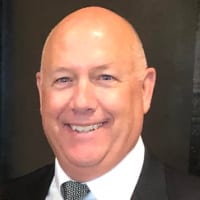
Karl Fillhouer started his career in logistics in 1983 just as the effects deregulation were kicking in. He worked in both sales and operations for most of his career. His first employer was an Air Freight Forwarder and an LTL consolidator. After a merger and/or buyout or two, he found himself working for a truckload carrier, and then started his own brokerage in 1987. By 1991 his business suffered a couple of financial hits and he left the industry. By 1994 he was back in the logistics industry (The logistics industry is like a virus, once it’s in your blood you’ll never get rid of it) working for the first two gentlemen that hired him right out of college. Karl worked for them until 1999, and then joined a privately held trucking company to help build their 3PL division. He worked with that company for 19 years before joining Circle Logistics in 2018.

Joe Donnell graduated with a Music/Business Degree from DePauw University in 1982. He went on to work for Arthur Andersen & Co in Chicago for 3 years. From there he moved back to his hometown of Fort Wayne, In with Coopers & Lybrand for a year. Then he had a stint with Tokheim Corporation as their Internal Audit Manager and then Manager of Finance during which time he became a Certified Public Accountant. After a short 3 years at Alfe Heat Treating and then on to Transportation with L & L Transportation in Waterloo, IN that was acquired by Inergy LP and then Crestwood LP. Joe ran that trucking operation for those companies for 19 years as they went from $8 million in sales to $230 million in annual sales. Once that was done he went to Circle Logistics in FW where he has been for over 3 years as their Senior Director of Operations.
